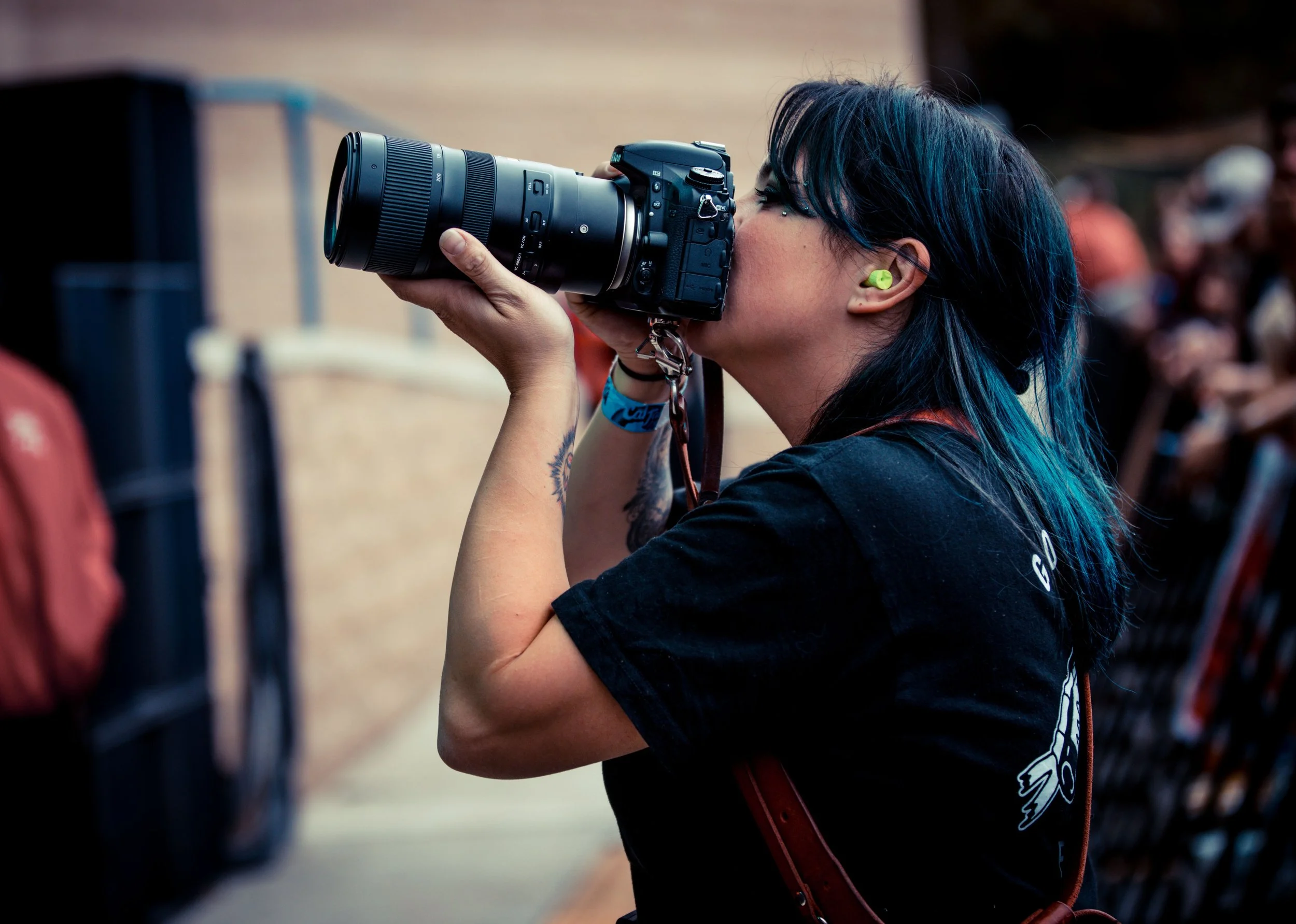When We Were Young 2025: Where the Past Meets What’s Next
Punk and rock music have always existed in cycles, quiet for long enough that people mistake the silence for an ending, only to roar back louder than before. What’s happening now feels different. It’s not a comeback or a reunion; it’s a rebirth. The sound remains raw, and the emotion is still genuine, but the intention feels new—more grounded, more self-aware, and more connected to its origins.
That energy was palpable from the moment When We Were Young 2025 opened its gates. The Las Vegas Festival Grounds transformed into a living timeline of the genre's evolution—sweat, sound, and survival colliding under the desert sun. For two days, guitars echoed across the Strip as tens of thousands of fans sang shoulder-to-shoulder. What’s striking about this moment in punk is not just the artists on stage, but how the culture surrounding it has matured. The same music that once expressed teenage defiance now reflects resilience. The anger has taken shape; the chaos has purpose. Songs that once rebelled against the world now strive to make sense of it. There is still rage, still heartbreak, still noise, but it is balanced with perspective, empathy, and growth. Punk hasn’t softened; it has expanded.
If you’ve been to past editions of When We Were Young Festival, the familiar sprawl of the Las Vegas Festival Grounds feels like muscle memory. The gates open to that same wide-open stretch of asphalt bordered by food trucks, merch tents, and art installations begging for photo ops. Each corner seemed to hum with its own personality. Shaded lounge zones and free-water stations made the desert heat bearable, turning the weekend into less of an endurance test and more of a shared experience. Across four stages, the weekend unfolded like a mixtape of every era that shaped the scene. Each corner of the grounds offered its own rhythm — the hum of the Allianz and Ghost stages feeding the heartbeat of the early day, while the main stages built toward the kind of explosive nights that have made When We Were Young a pilgrimage for fans of every generation.
Panic! at the Disco
When Panic! at the Disco took the stage in Las Vegas, it felt less like a comeback and more like a resurrection. Brendon Urie returned home to Nevada with the confidence of an artist who understood the significance of the moment. The crowd's anticipation buzzed like static before the first notes even hit, and when they did, it was evident that Panic! had come to make a statement.
The band launched into *A Fever You Can’t Sweat Out* in its entirety, marking the first time the album had been performed front to back in nearly two decades. For fans who grew up with it, the set felt like opening a time capsule, with one hit after another delivered with Urie's signature theatrical precision. Once the final notes of *A Fever You Can’t Sweat Out* rang out, Urie shifted gears. The second half of the night was a journey through the rest of Panic!’s history — the good, the bold, and the gloriously strange. Songs like “Hey Look Ma, I Made It,” “Nine in the Afternoon,” and “Victorious” lit up the field, punctuated by Urie’s show-stopping falsetto and boundless charisma. He seamlessly transitioned into a stunning cover of Queen’s “Bohemian Rhapsody.”
Then came the moment everyone had been waiting for: “I Write Sins Not Tragedies” — the song that defined an era — sent the entire festival into a collective frenzy. Every word of “I chime in, haven’t you people ever heard of closing the goddamn door?” echoed from the stage to the farthest gates. The song made two appearances that night: once in the main set and again during the encore, this time joined by original drummer Spencer Smith — a rare reunion that sent fans into ecstasy.
As fireworks lit up the Las Vegas skyline and confetti filled the air, Urie stood center stage with his arms wide open, a mix of disbelief and joy on his face. It wasn’t merely nostalgia; it was renewal. Panic! at the Disco didn’t just close the festival; they redefined what a comeback can look like.





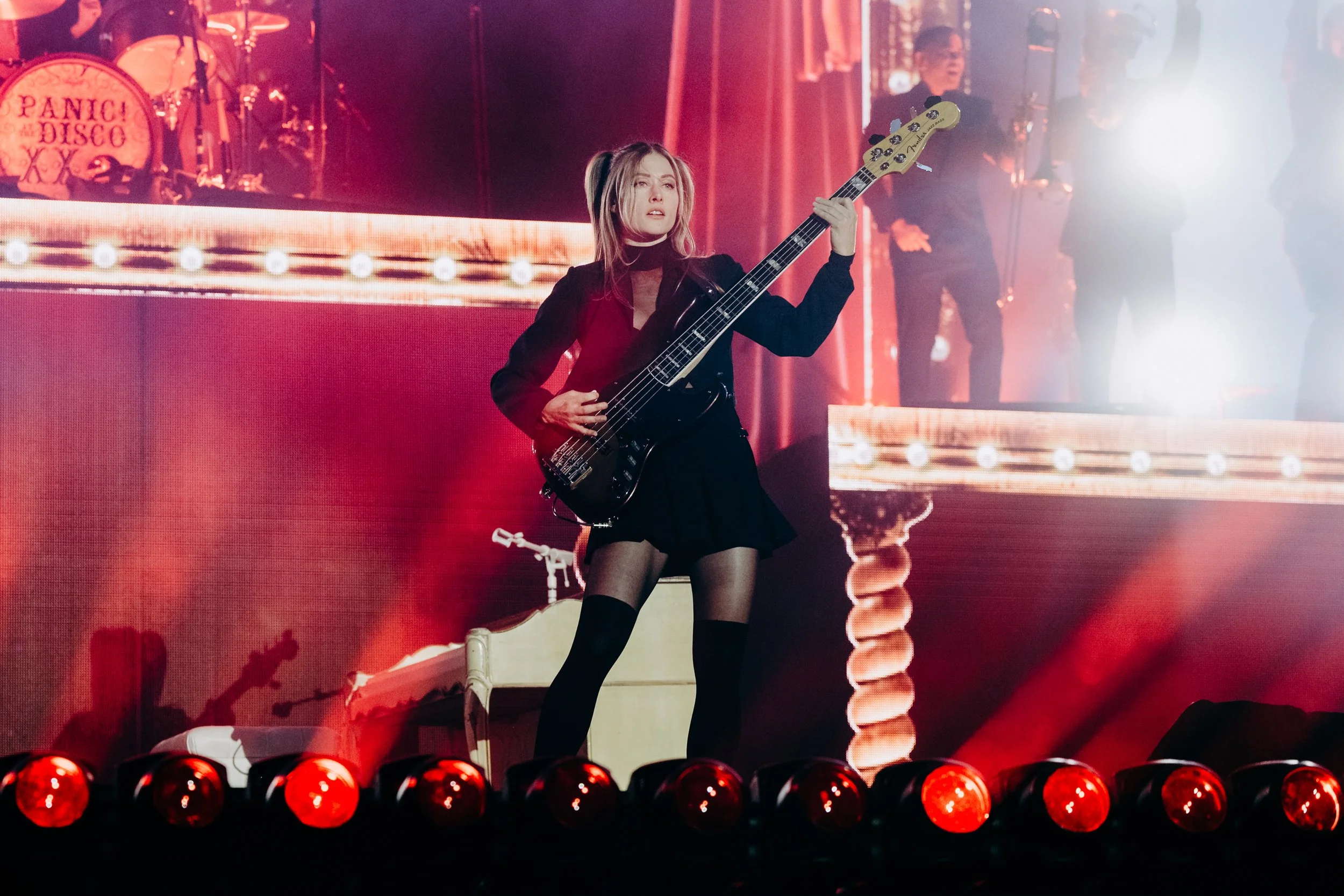























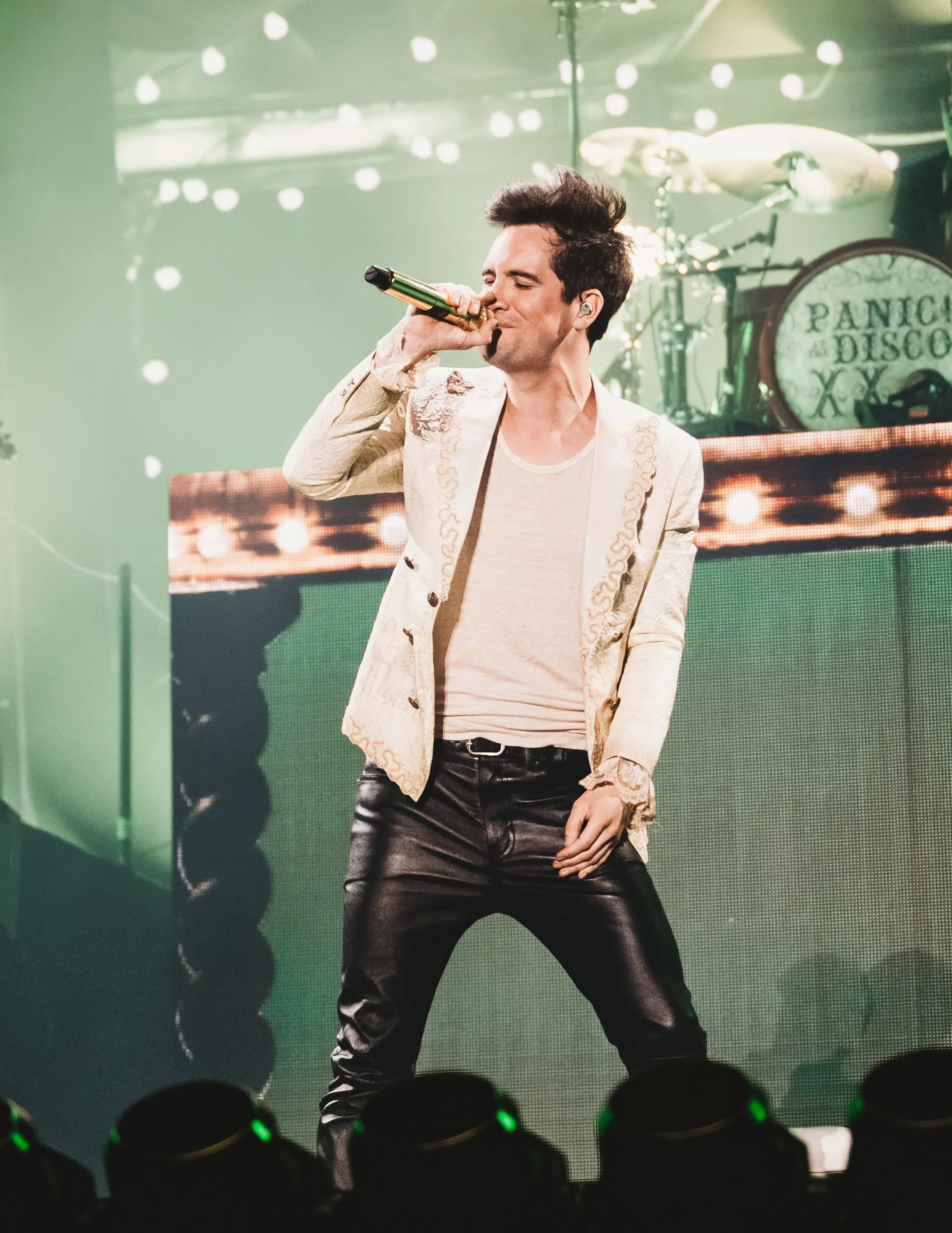


BLINK 182
If Panic! At The Disco represented an emotional homecoming, then Blink-182 brought the party. Their late-night set fully embraced the desert darkness, unleashing an impressive array of hits, including “What’s My Age Again?”, “All the Small Things,” and “The Rock Show.” They delivered these songs with a unique blend of humor and heart. Confetti cannons erupted overhead, fans enthusiastically sang along to every lyric, and by the time they reached their encore, the entire crowd was moving as one. Blink-182 left behind more than just nostalgia; they demonstrated that joy and chaos remain integral to the spirit of this music scene.











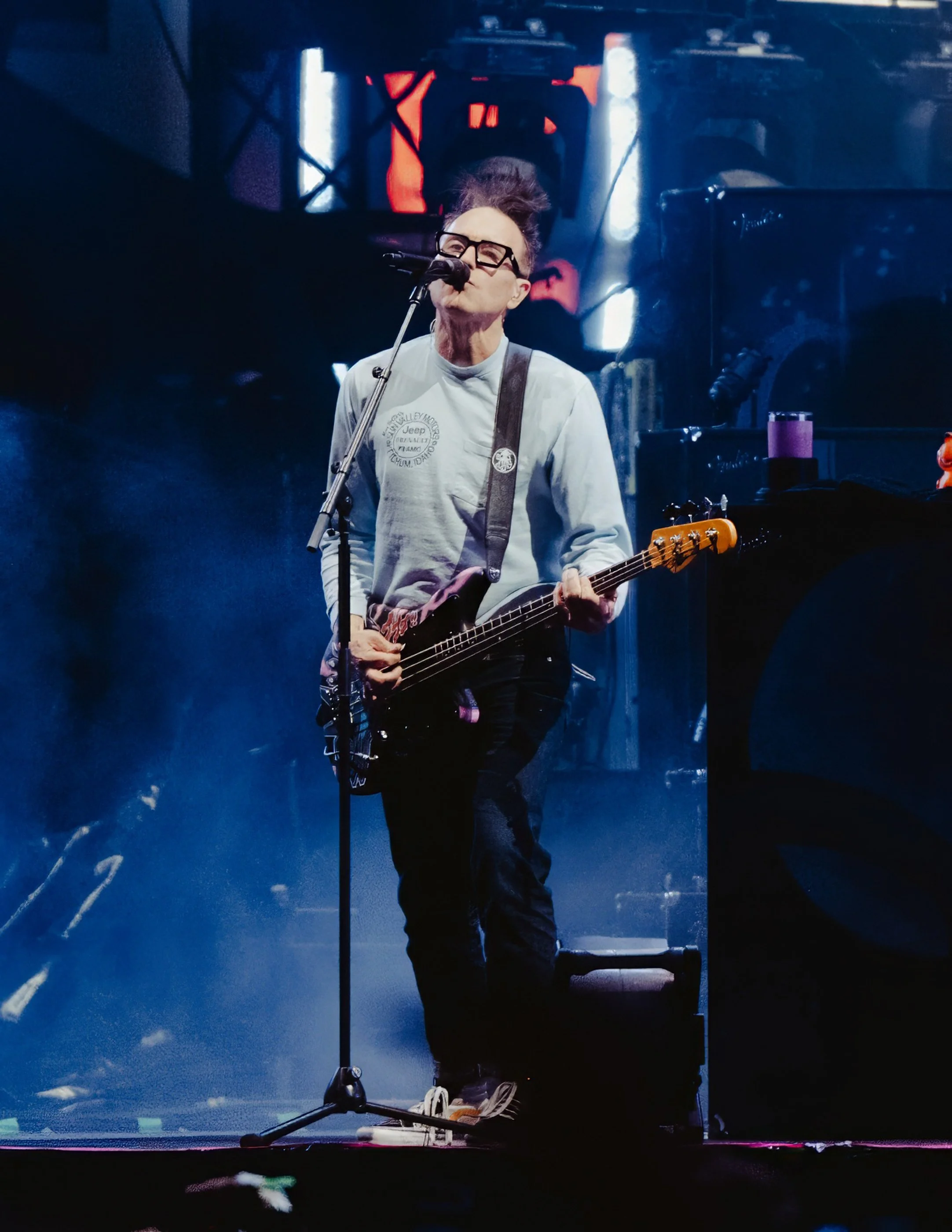
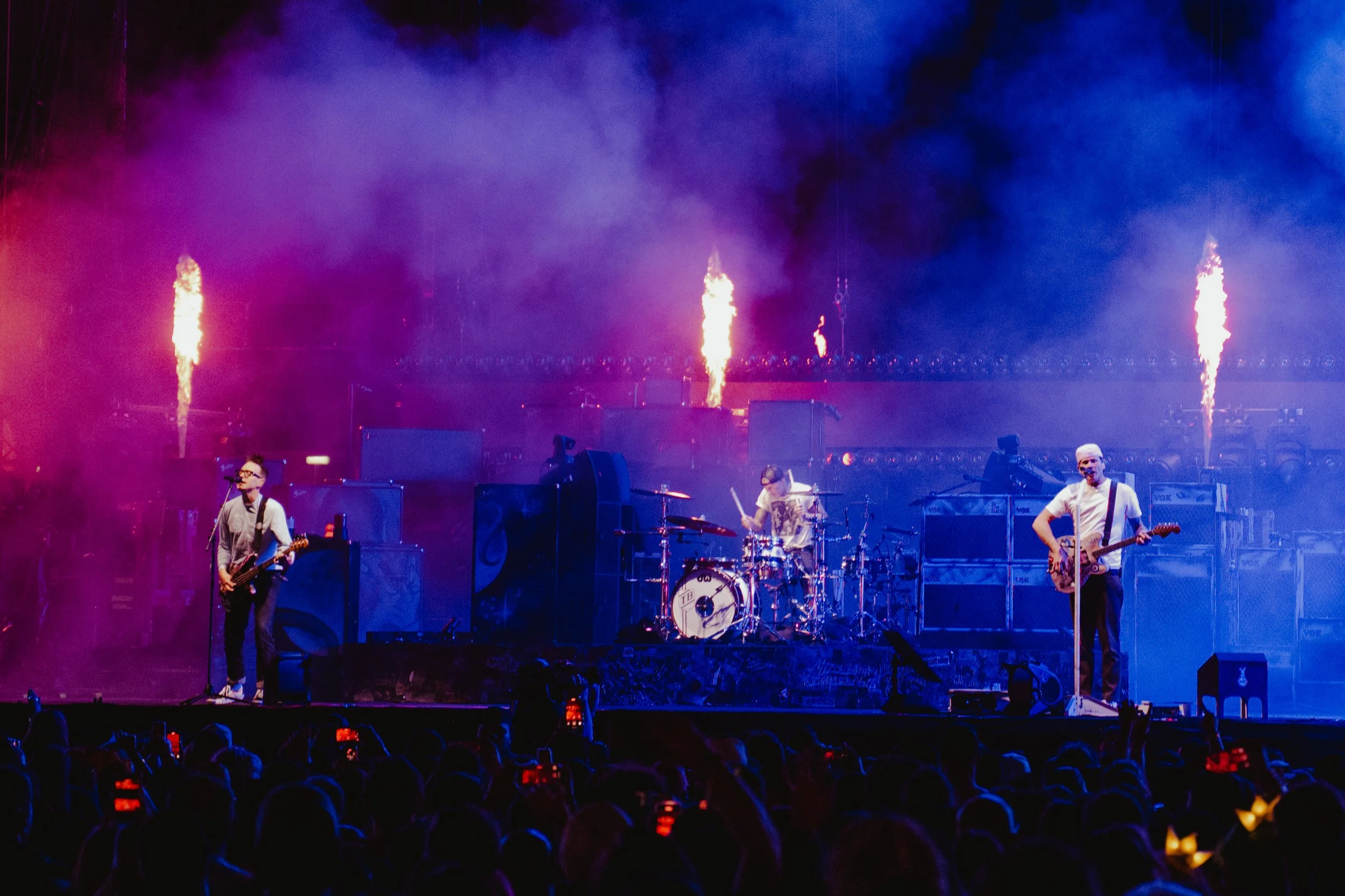























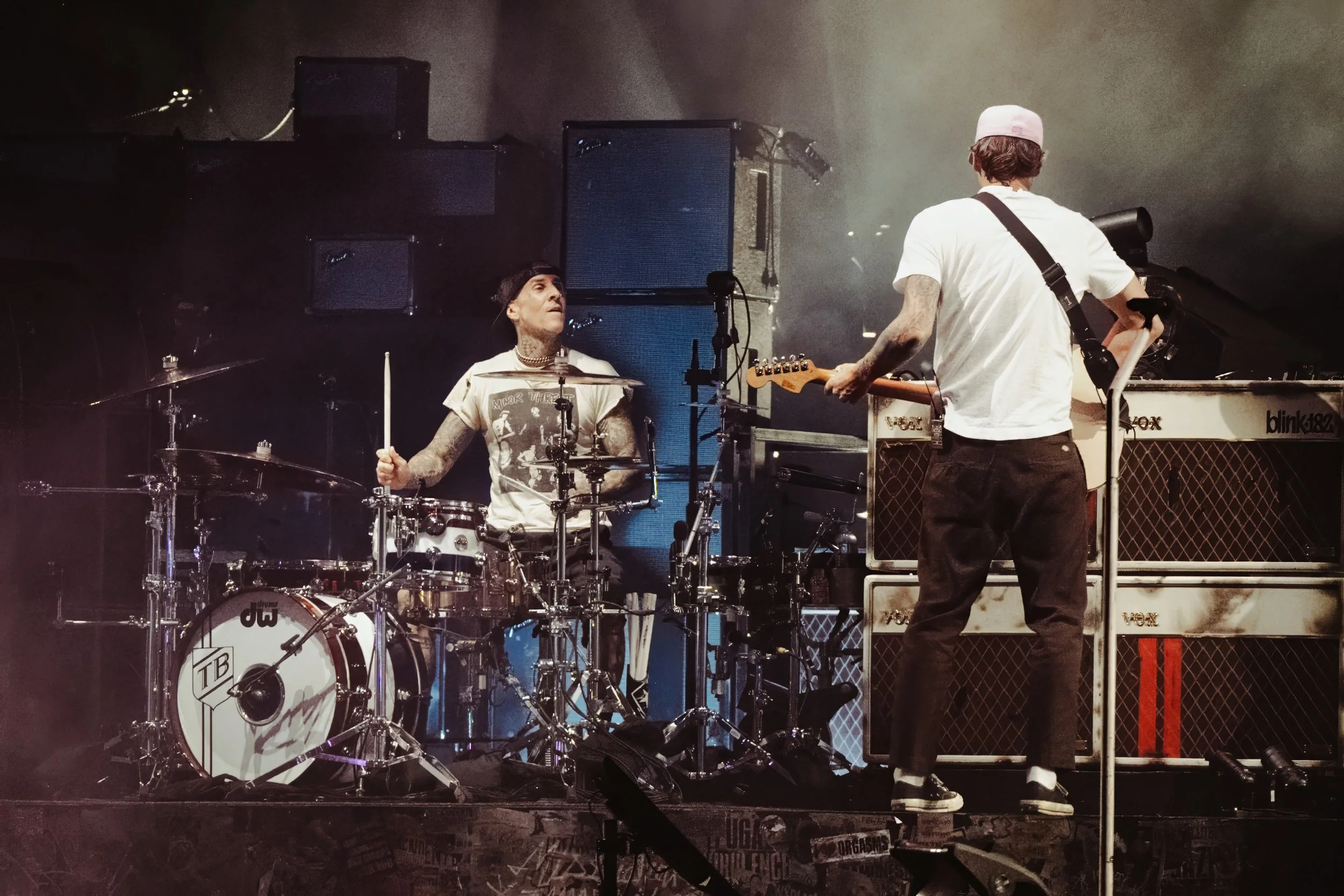








Avril Lavigne
Avril's performance was a captivating mix of nostalgia and revival. She stormed onto the stage dressed in pink plaid and black leather, taking the crowd on a 20-year journey through the hits that defined a generation. Songs like “Sk8er Boi,” “Complicated,” and “My Happy Ending” resonated with the audience as if they were reciting them from memory. Avril’s energy was vibrant, confident, playful, and entirely in control.
The highlight of Saturday night came when she invited Simple Plan to join her for “Young & Dumb,” their chemistry making the performance effortlessly infectious. Sunday elevated the experience even further as she welcomed Deryck Whibley of Sum 41 for “In Too Deep.” The crowd erupted, creating a perfect snapshot of the early 2000s music scene reborn in real time.

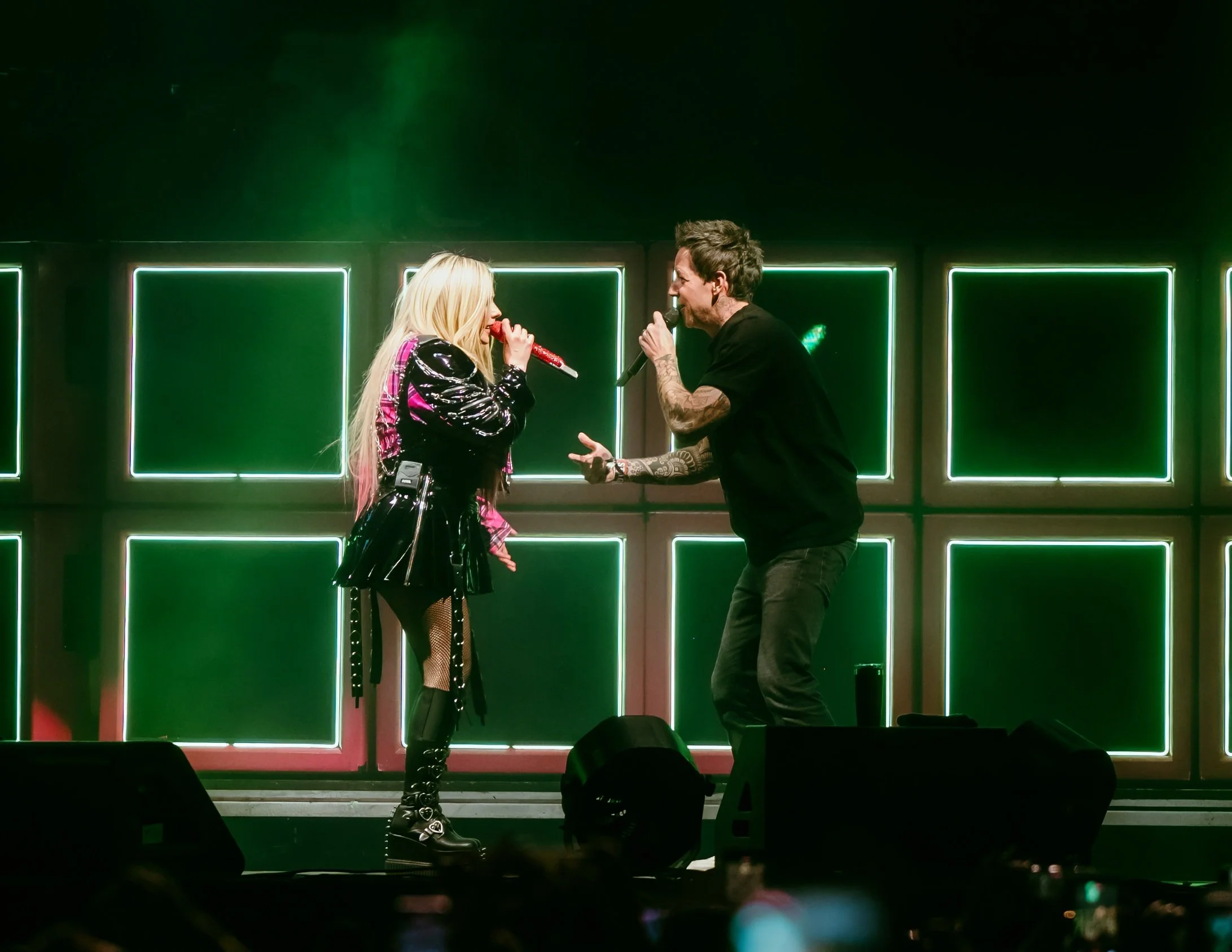
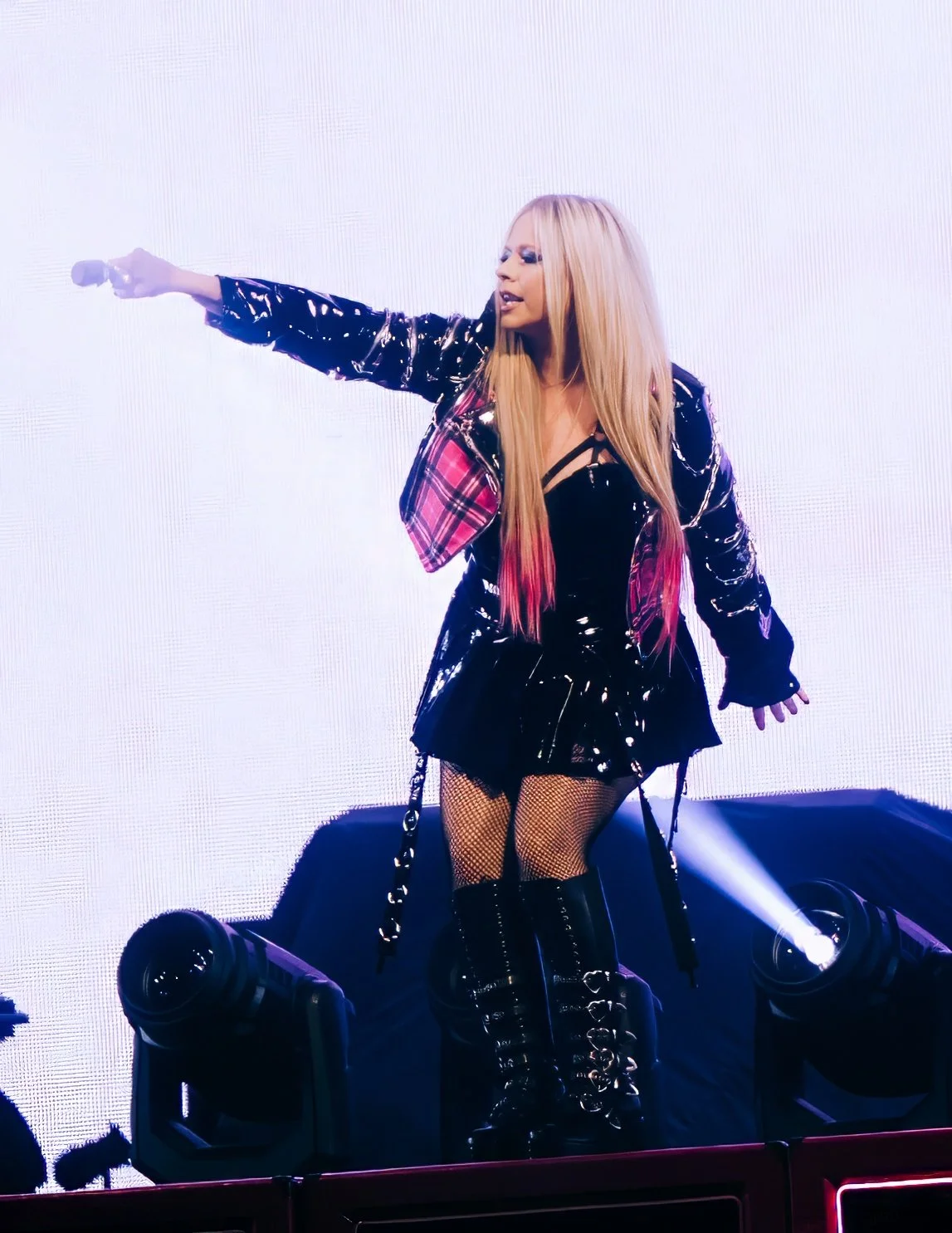
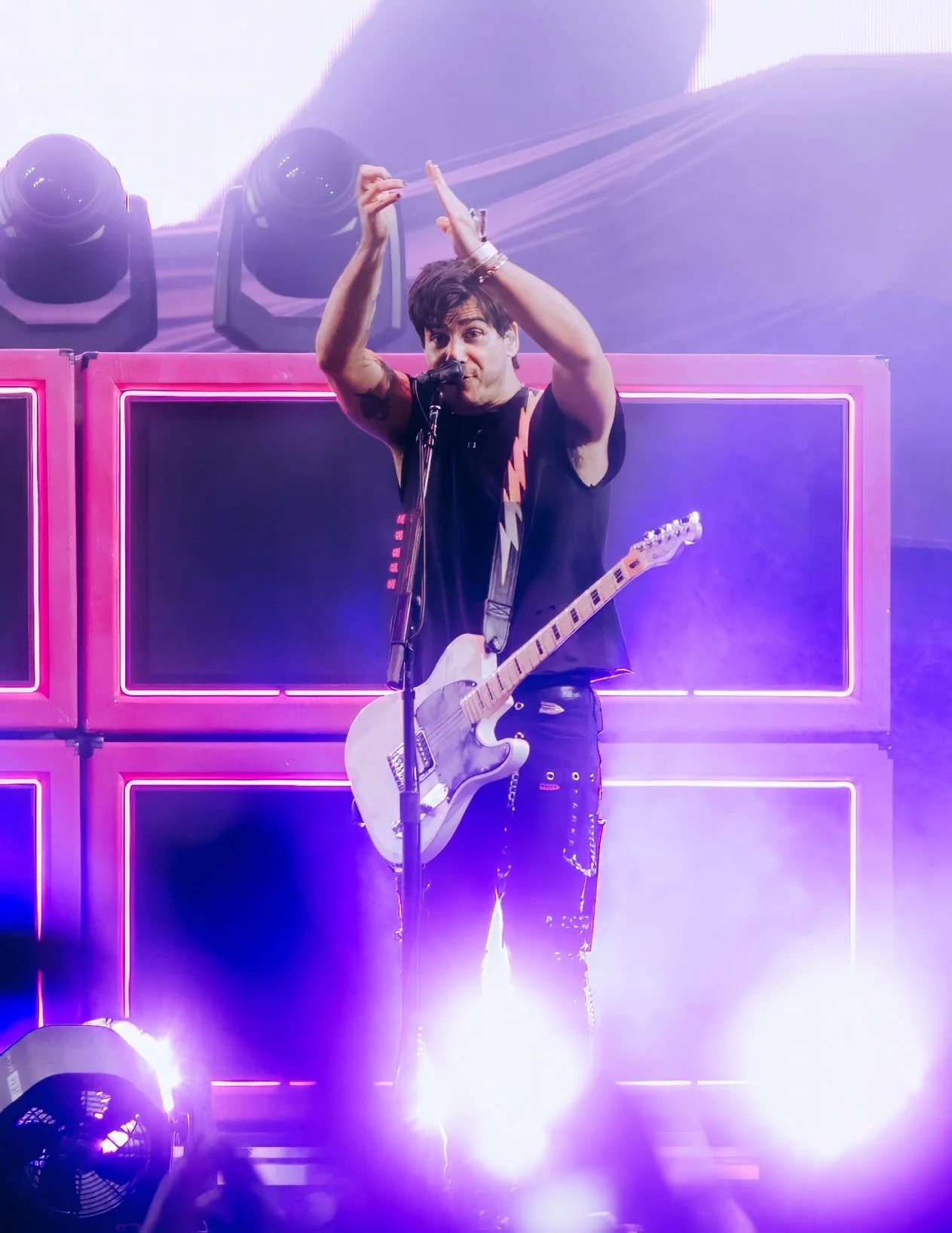
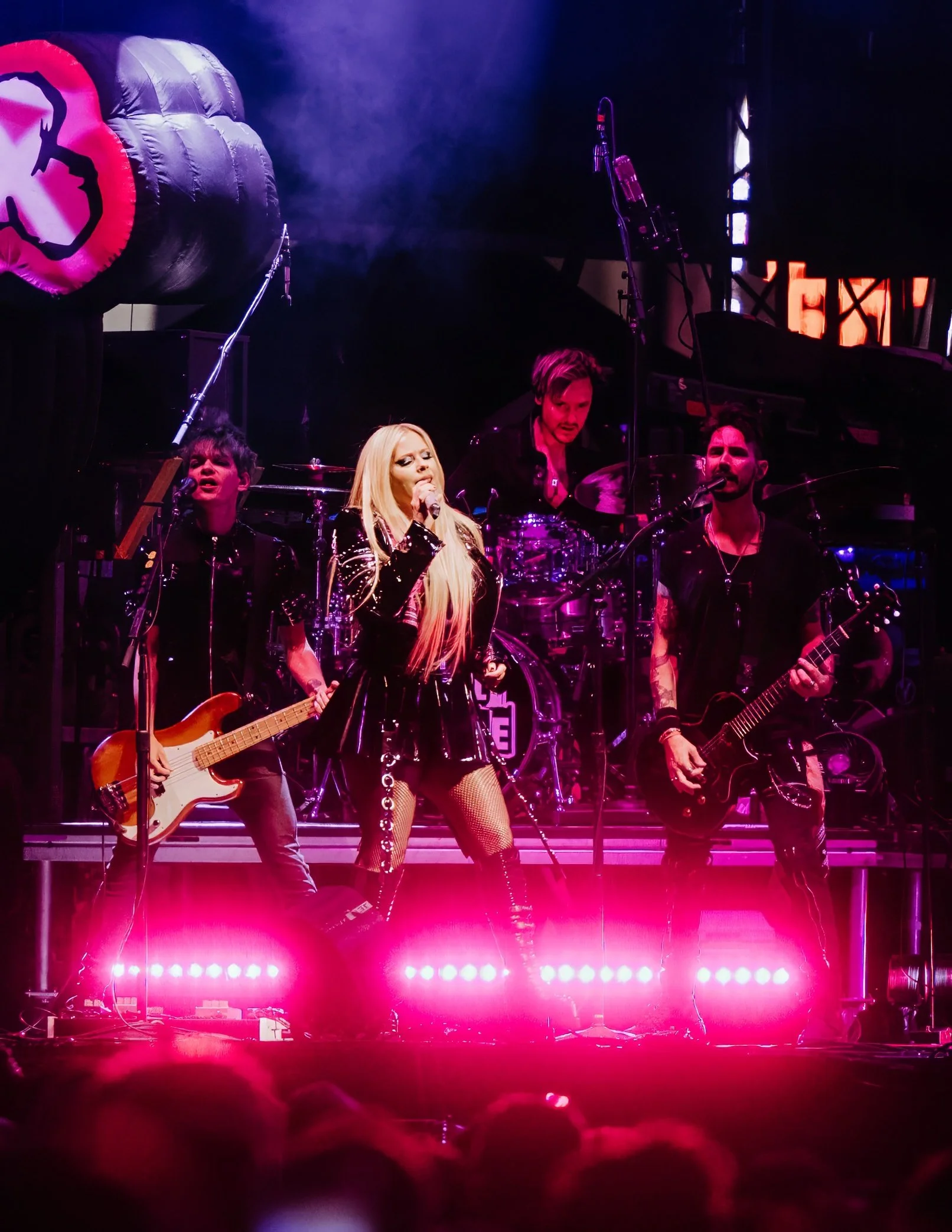
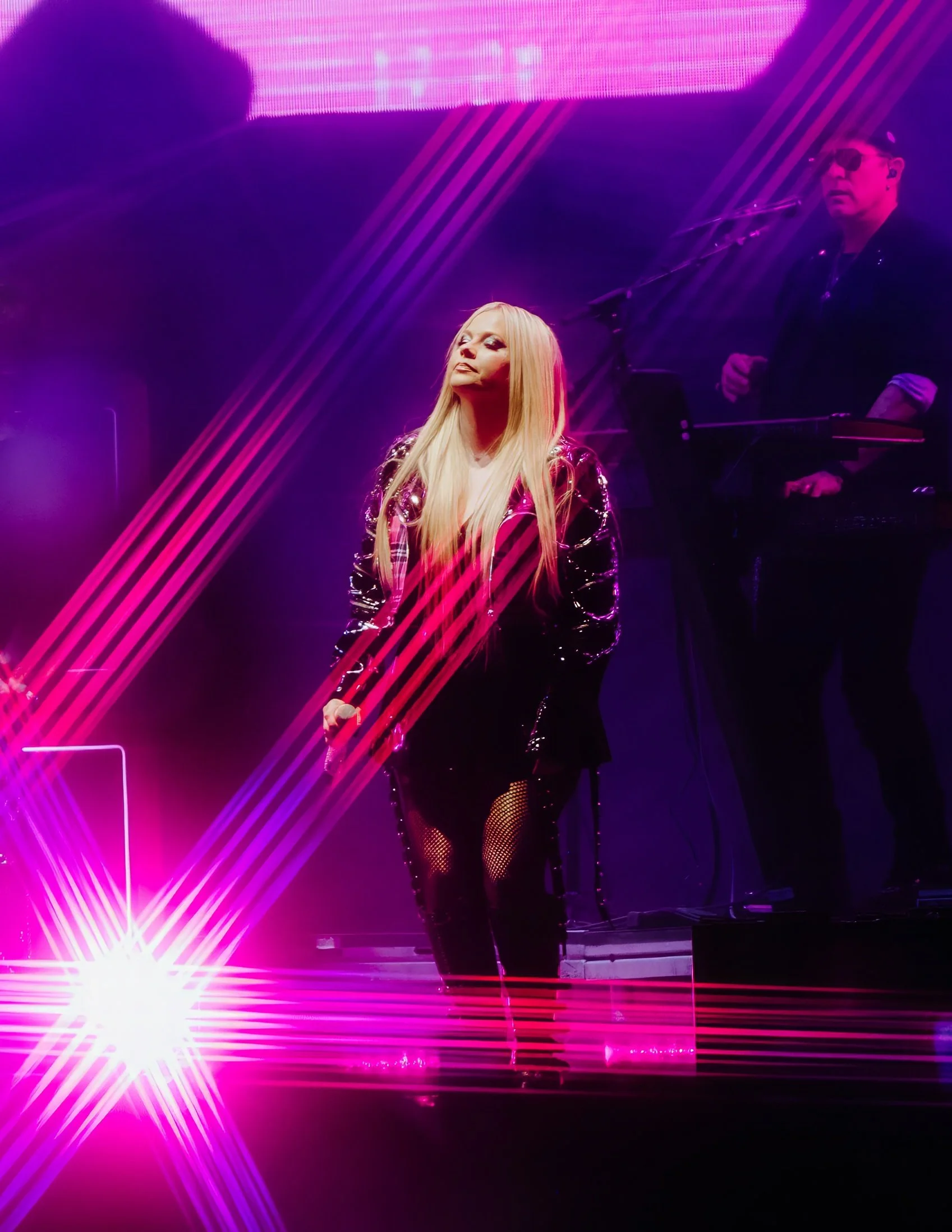
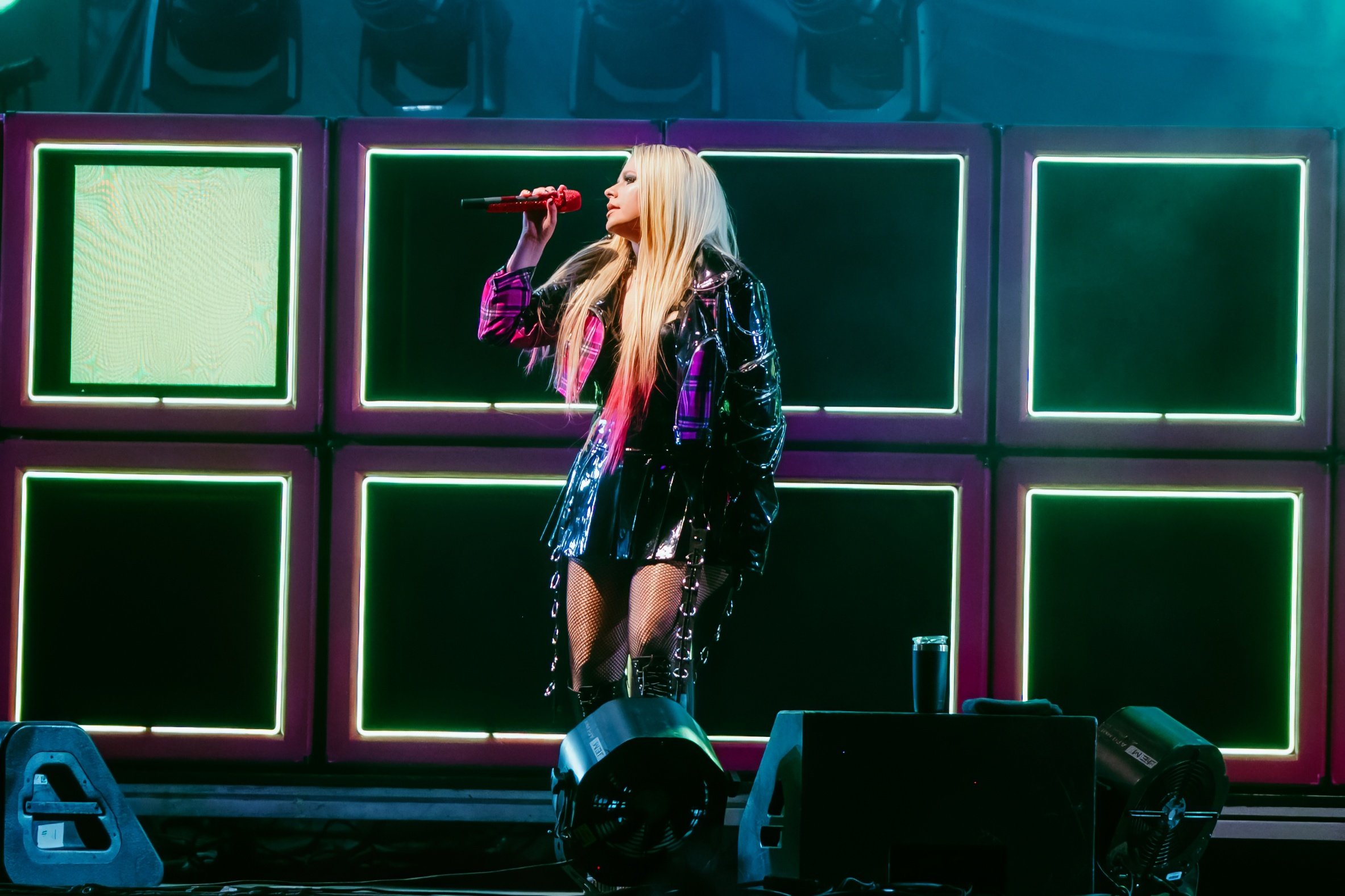
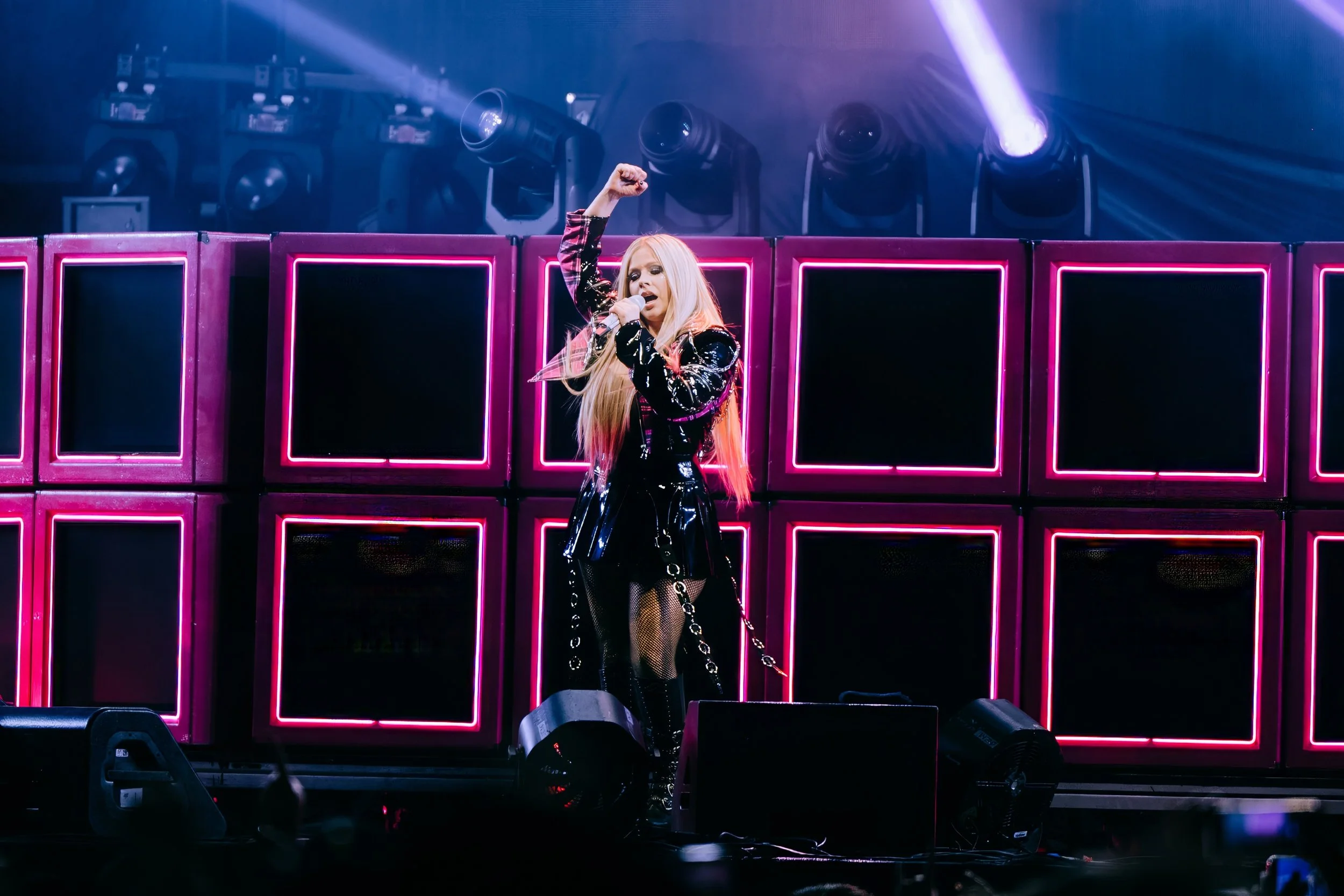
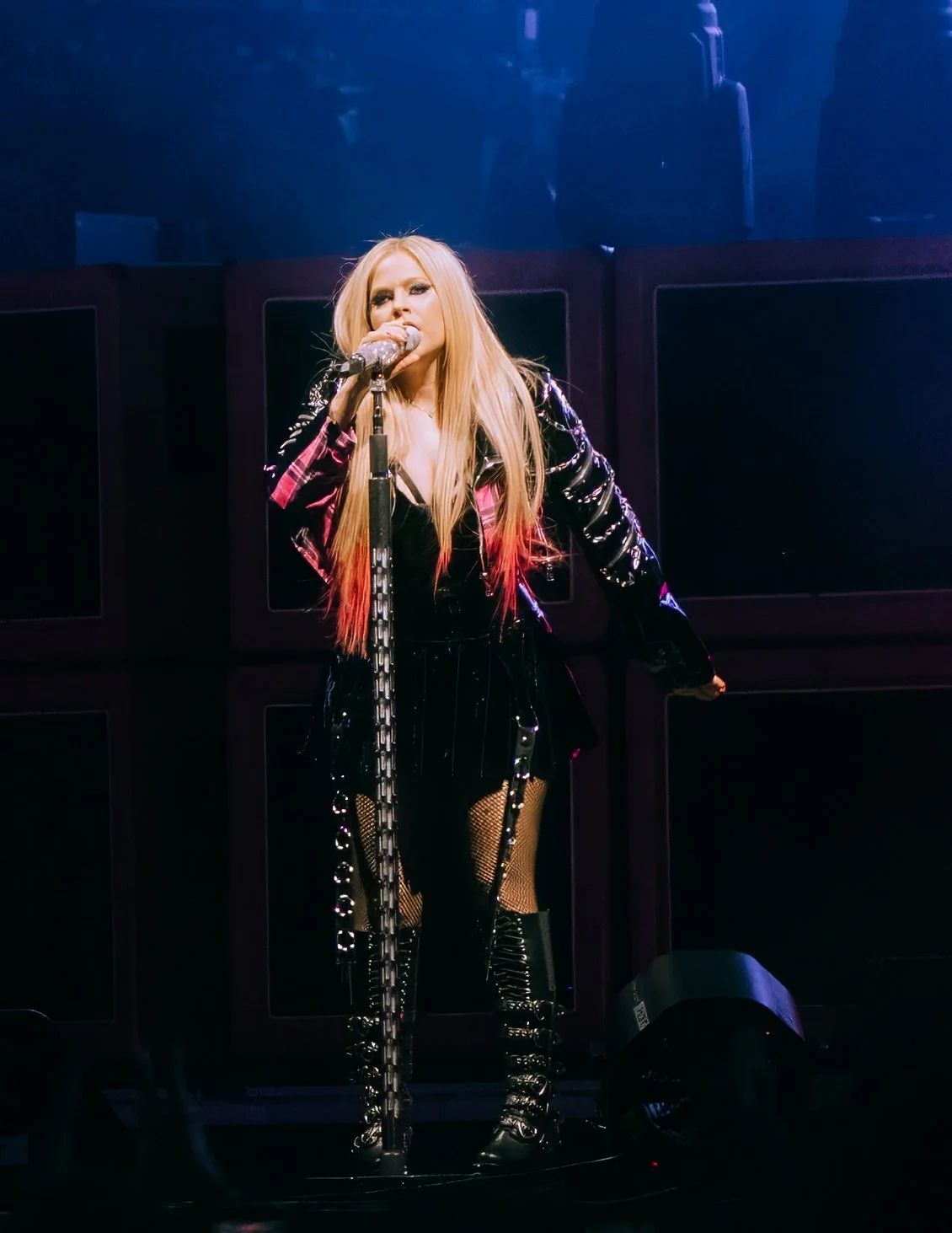

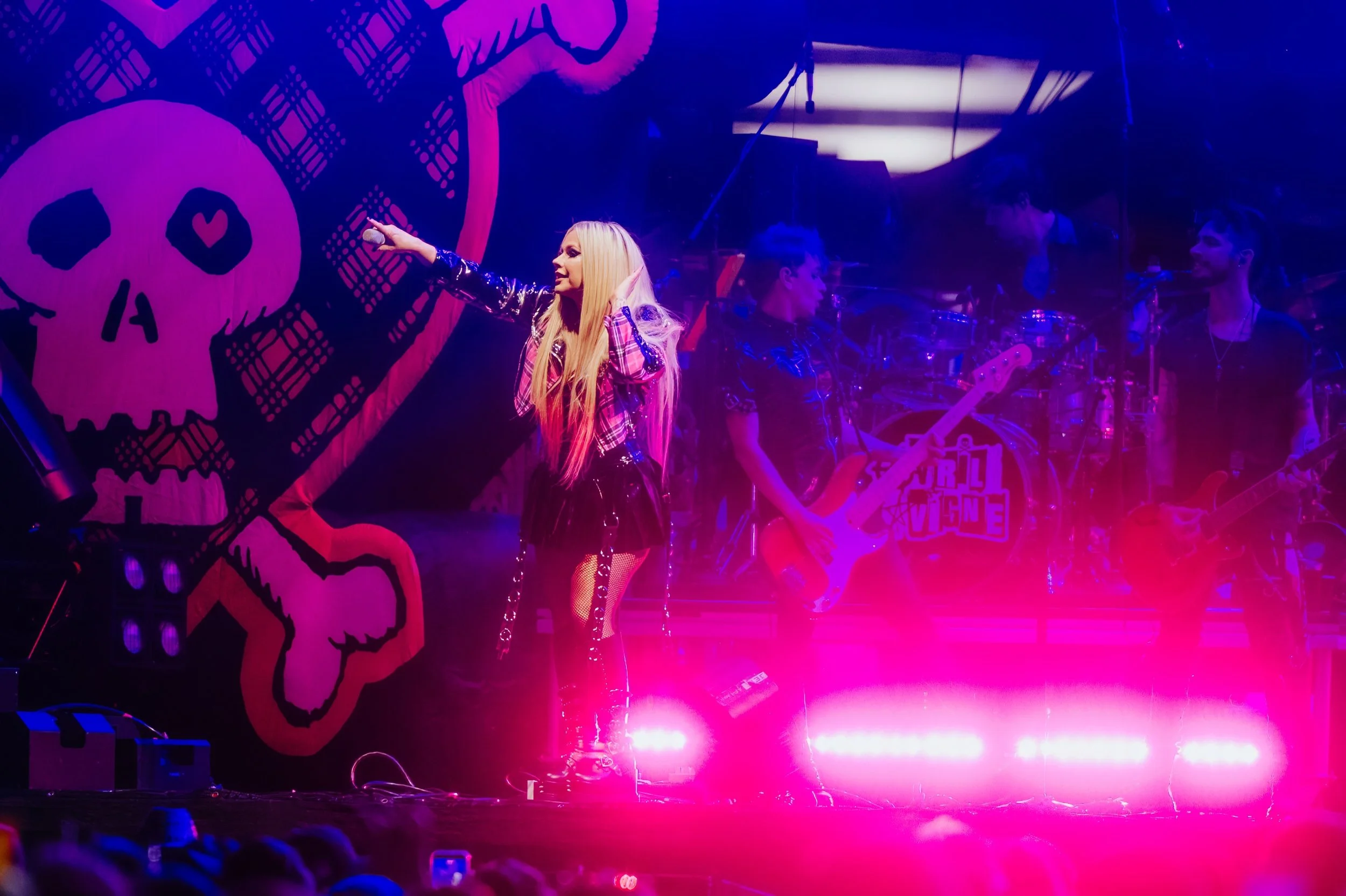
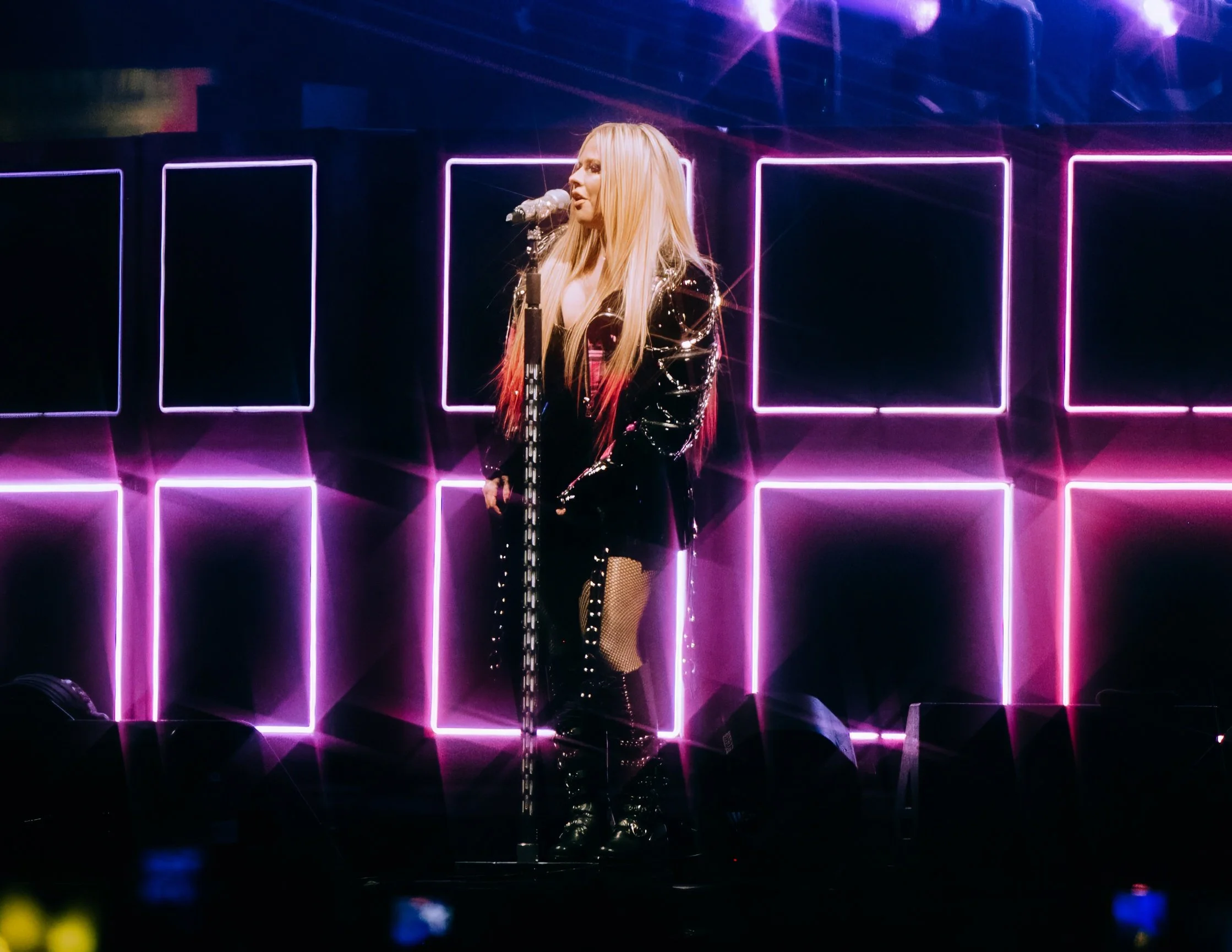


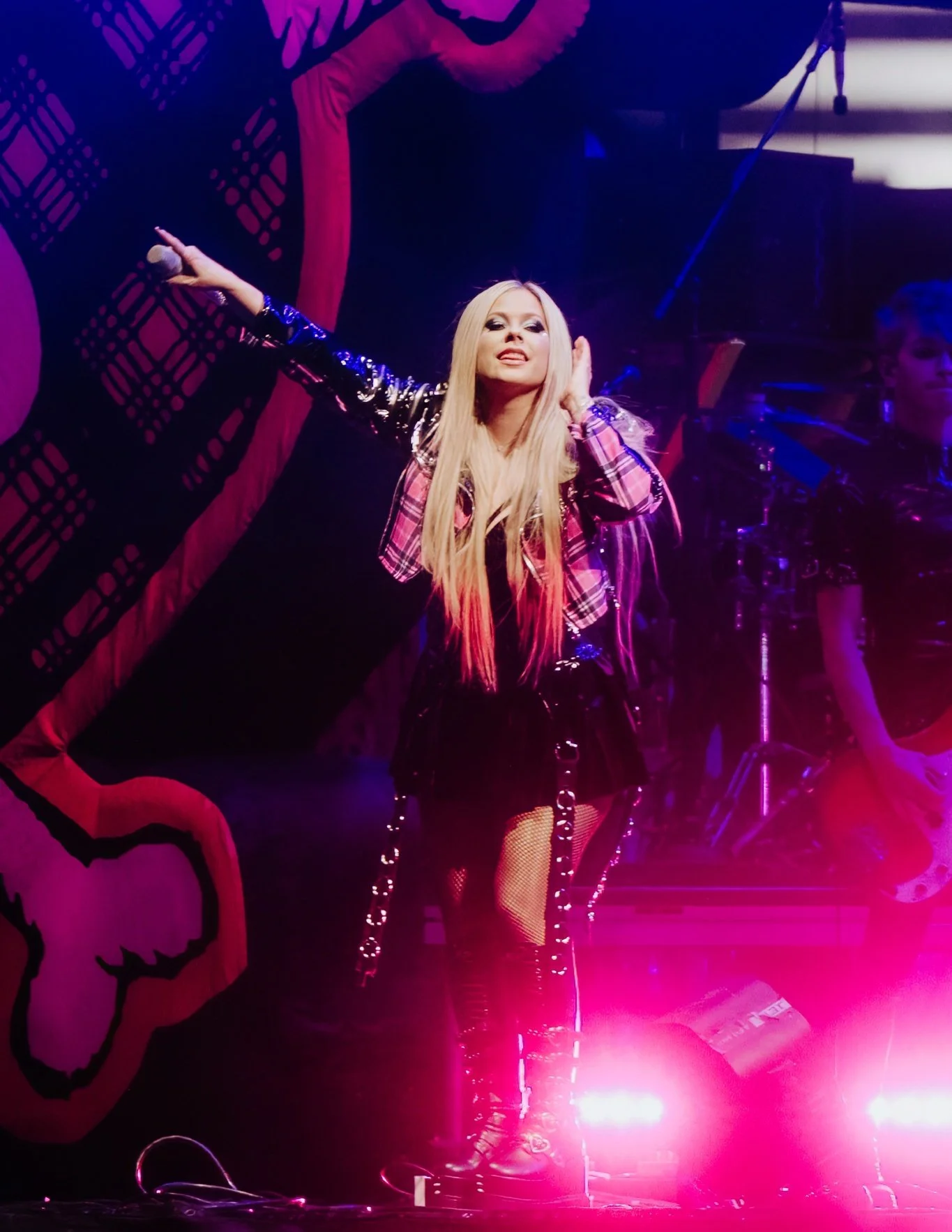
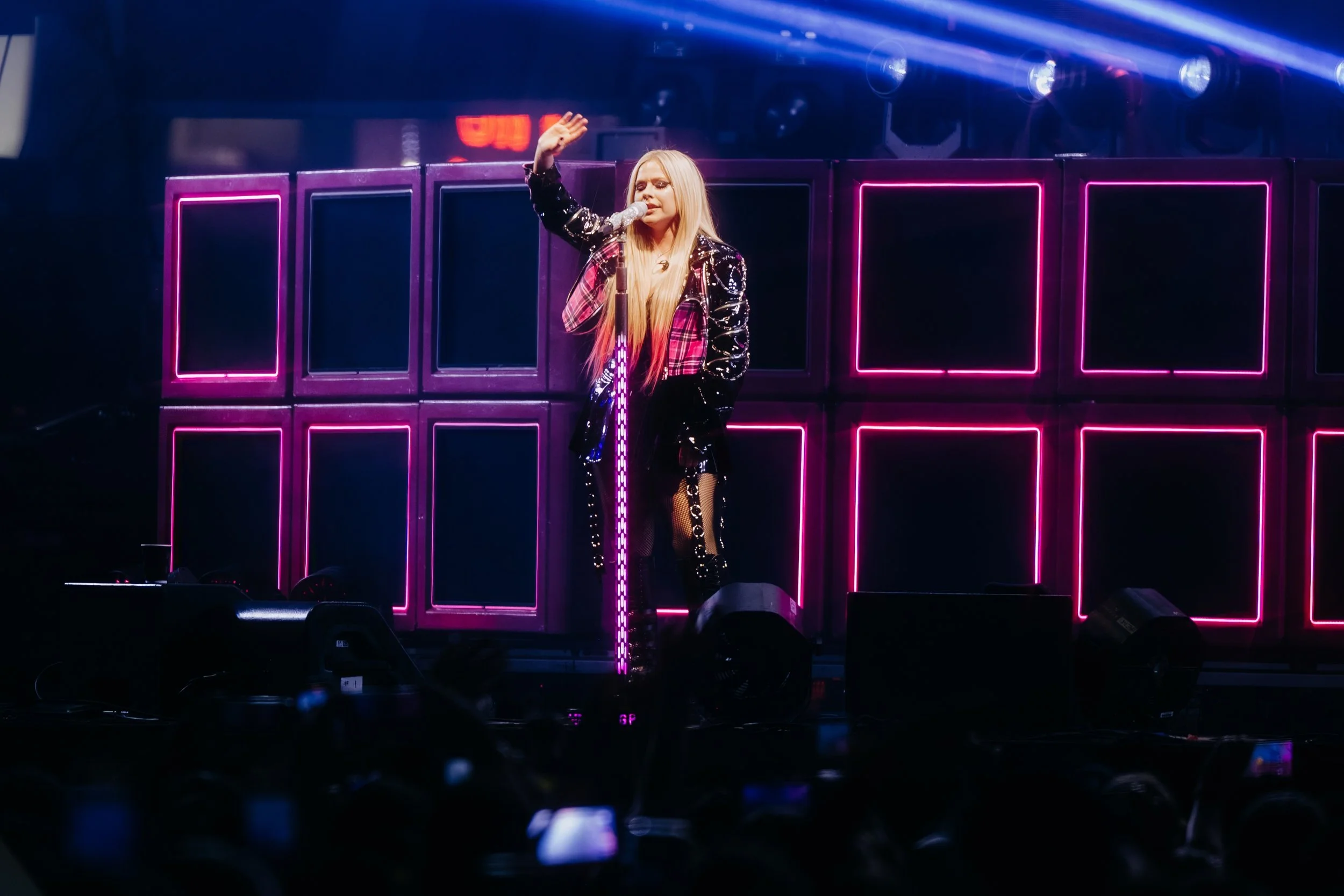
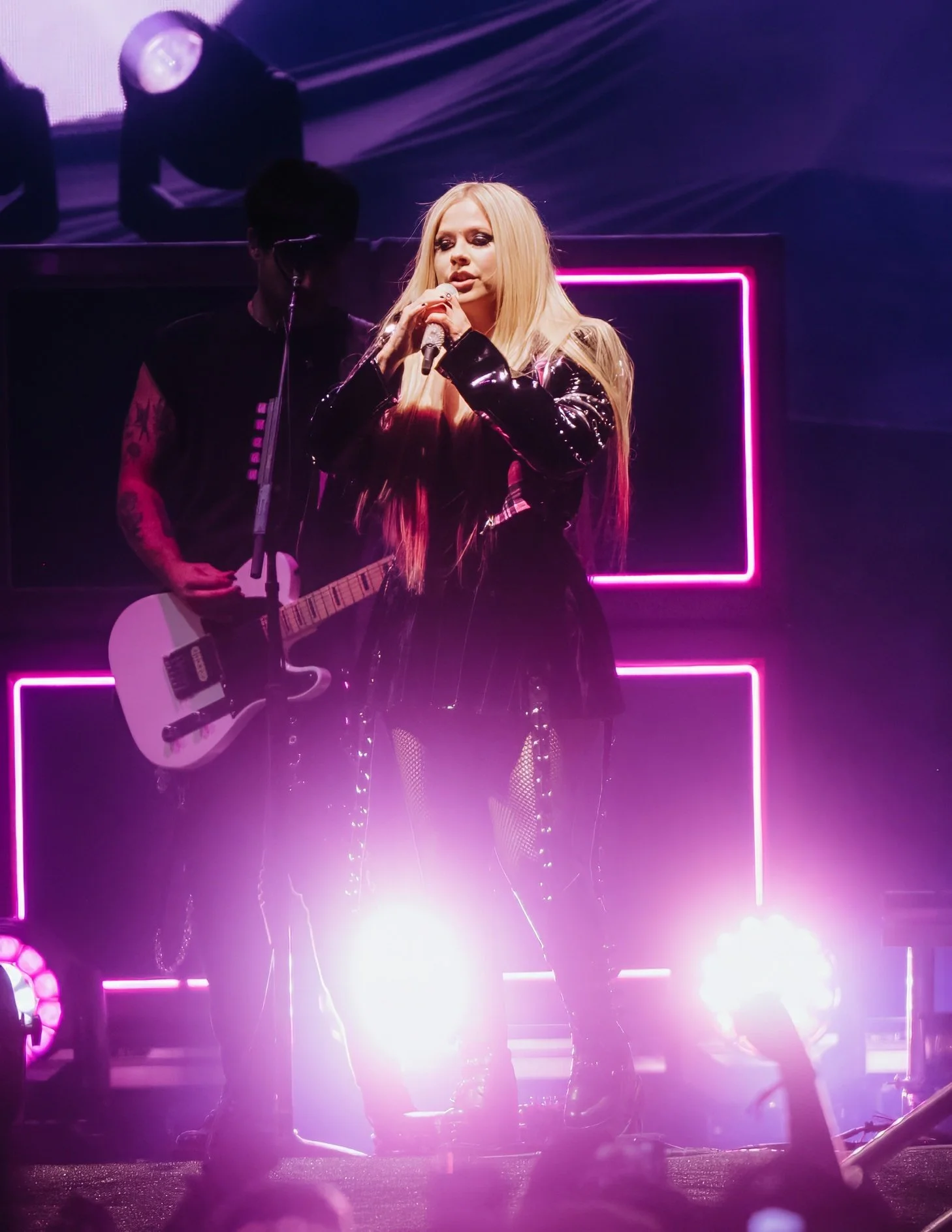
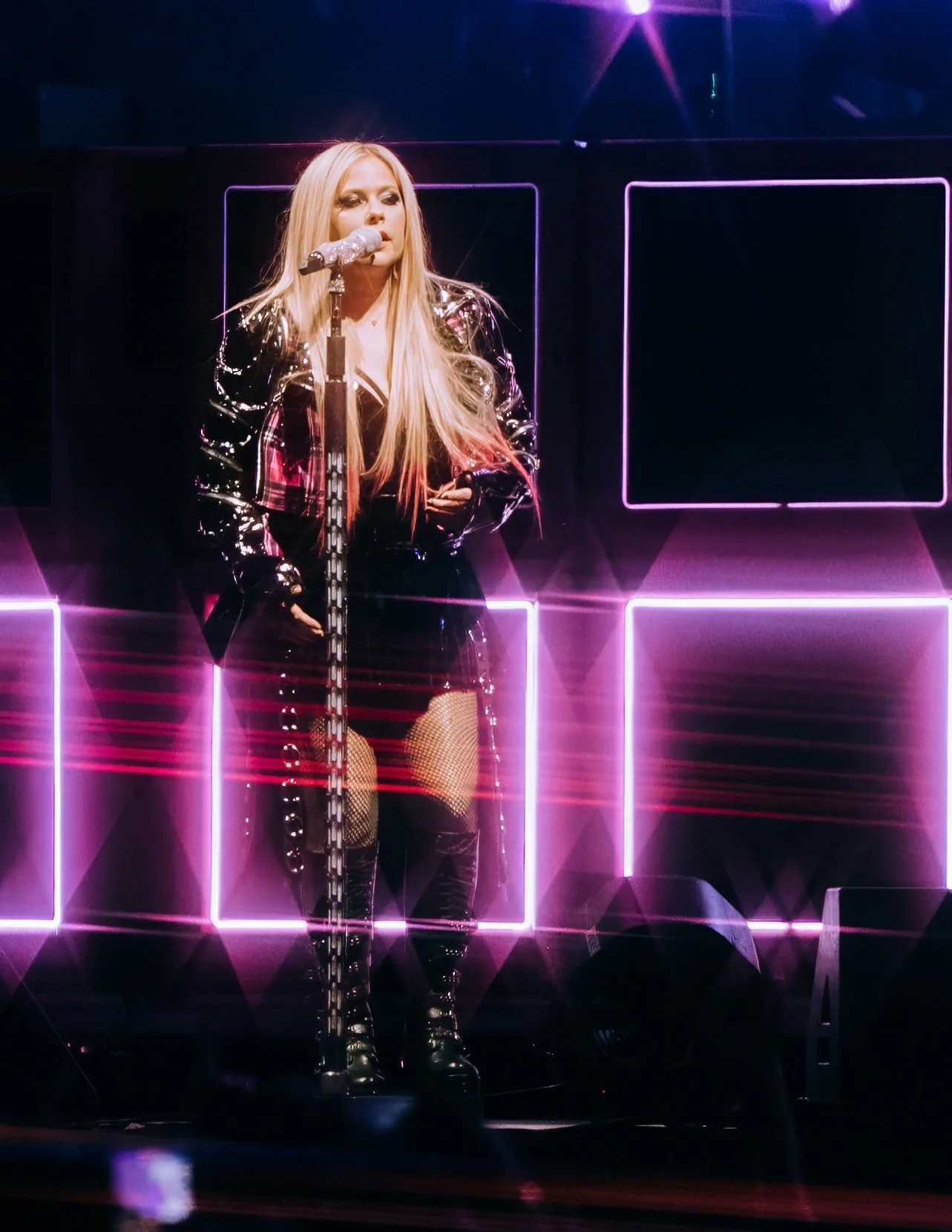
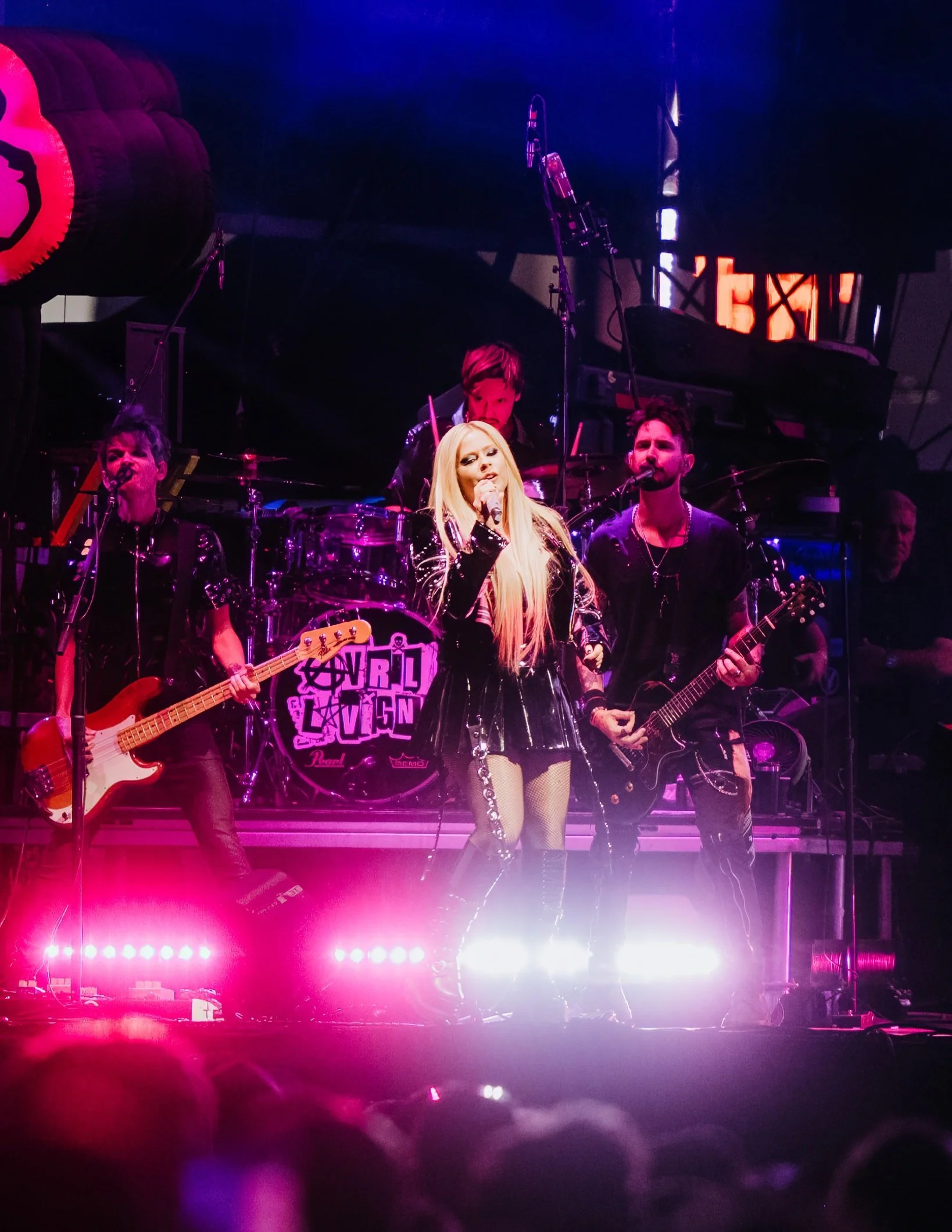
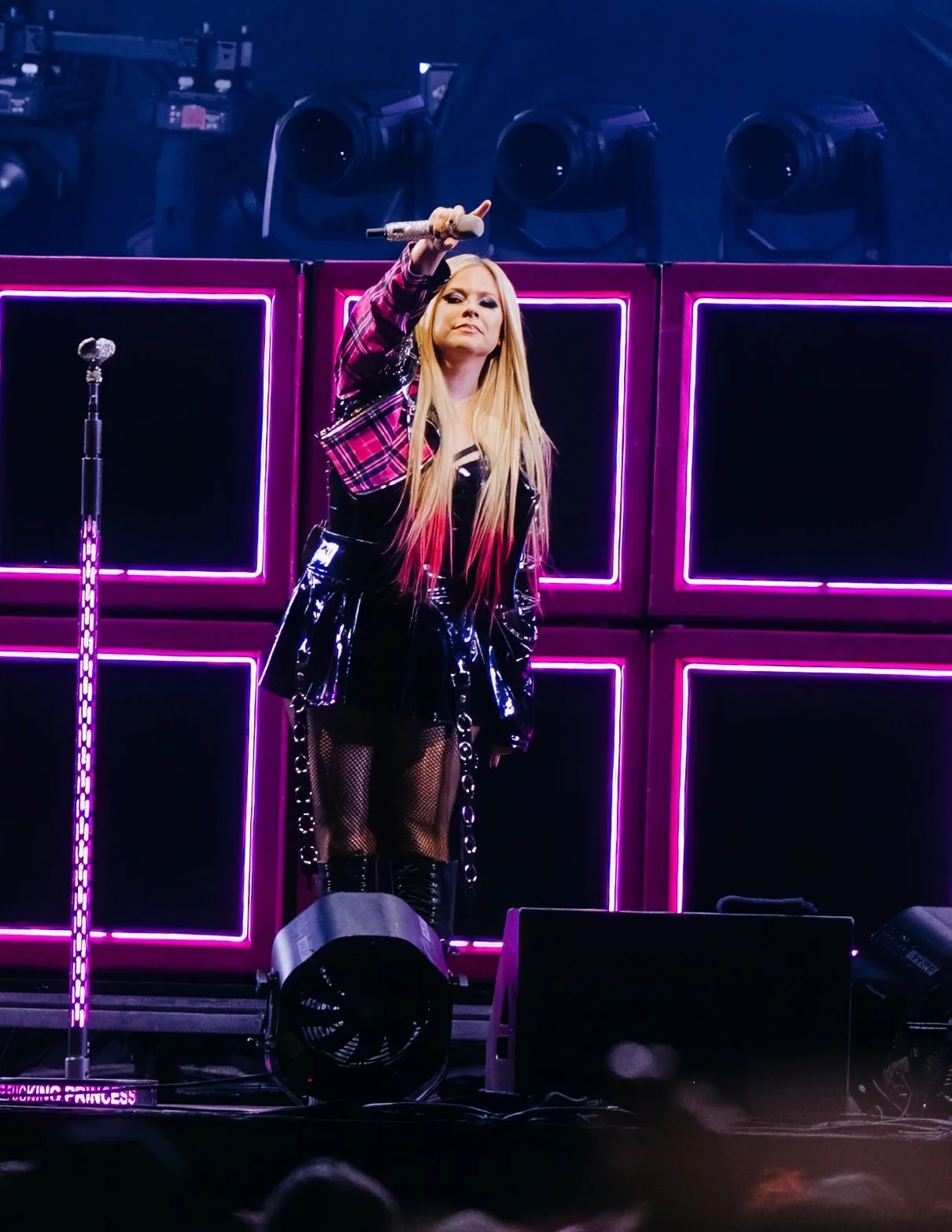
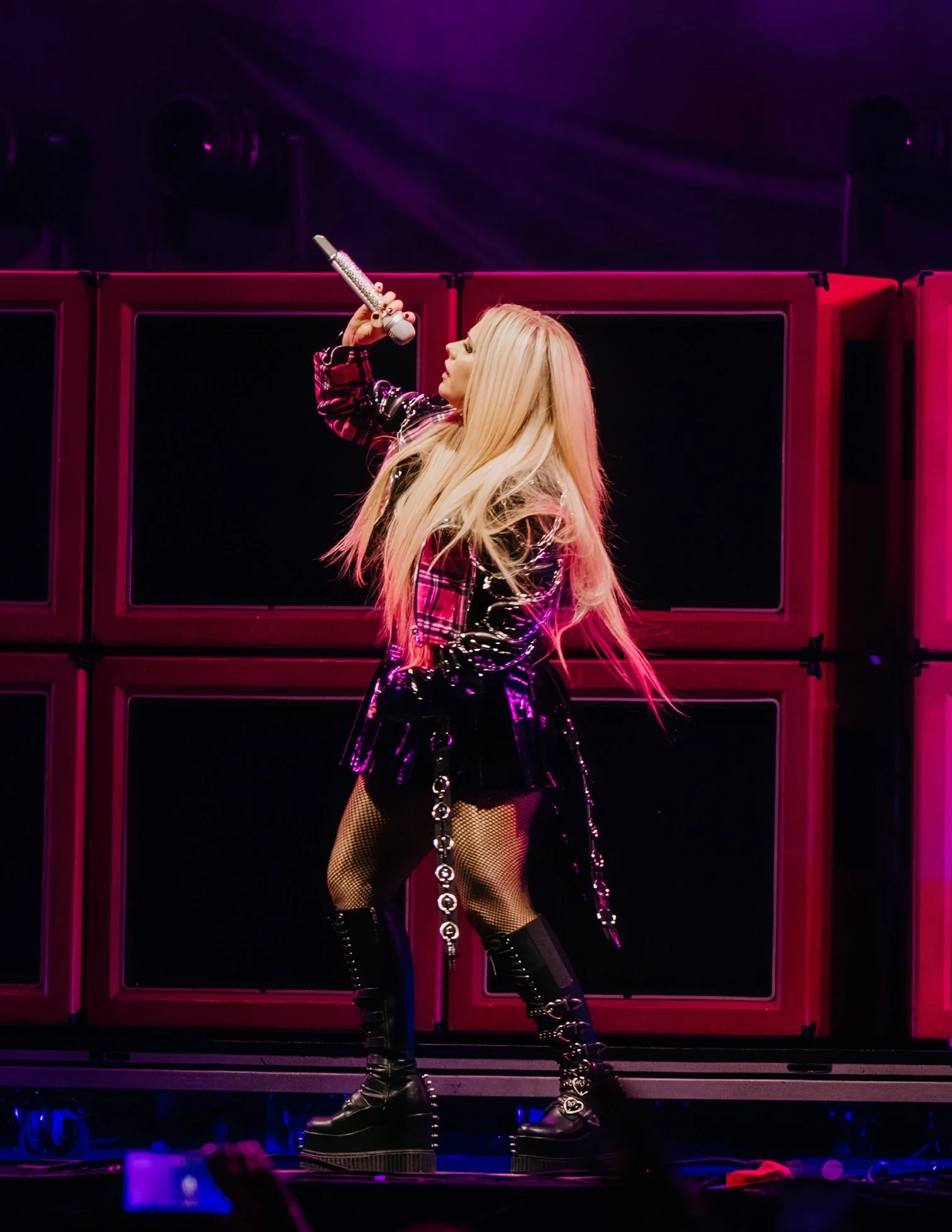
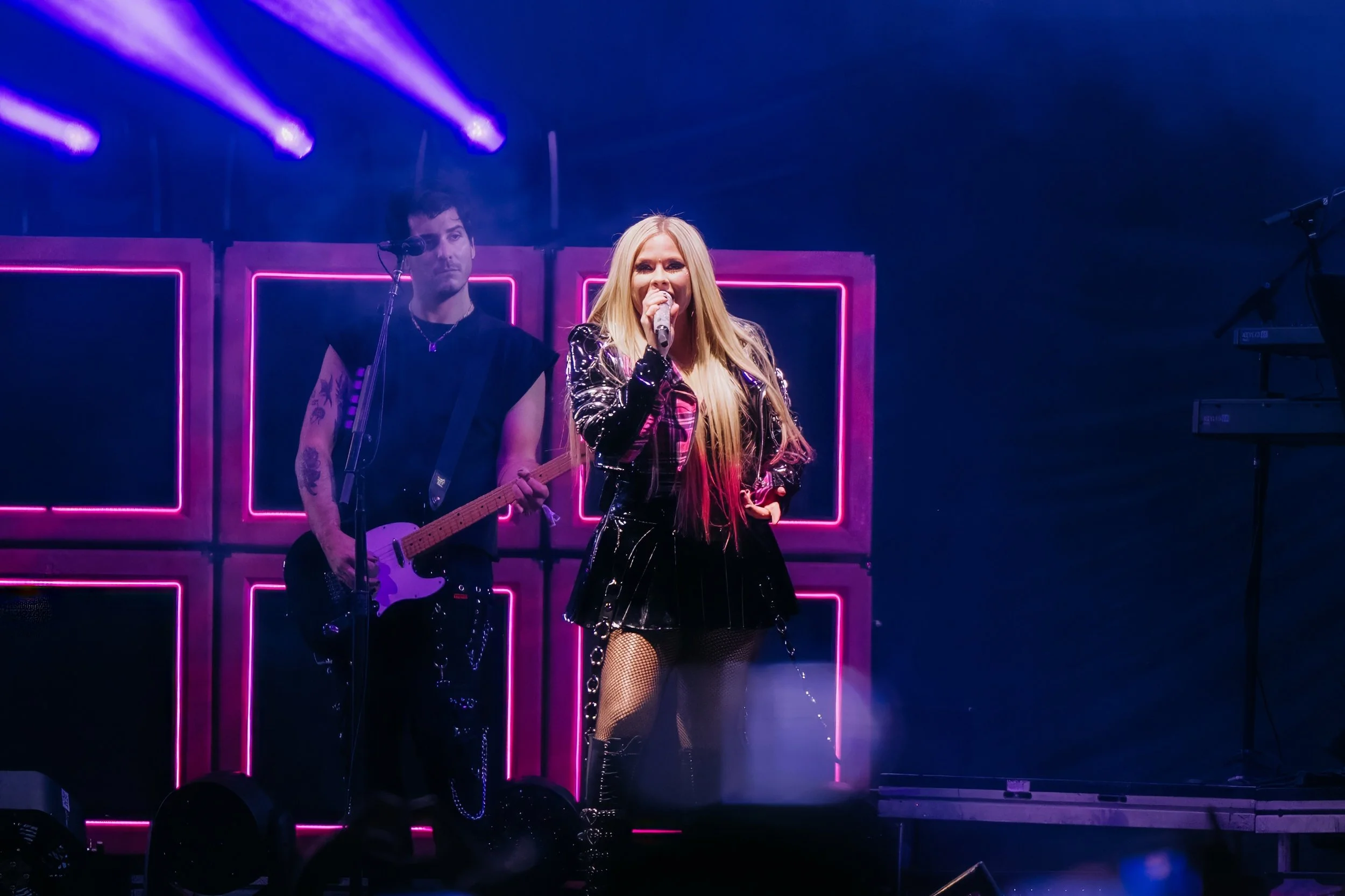
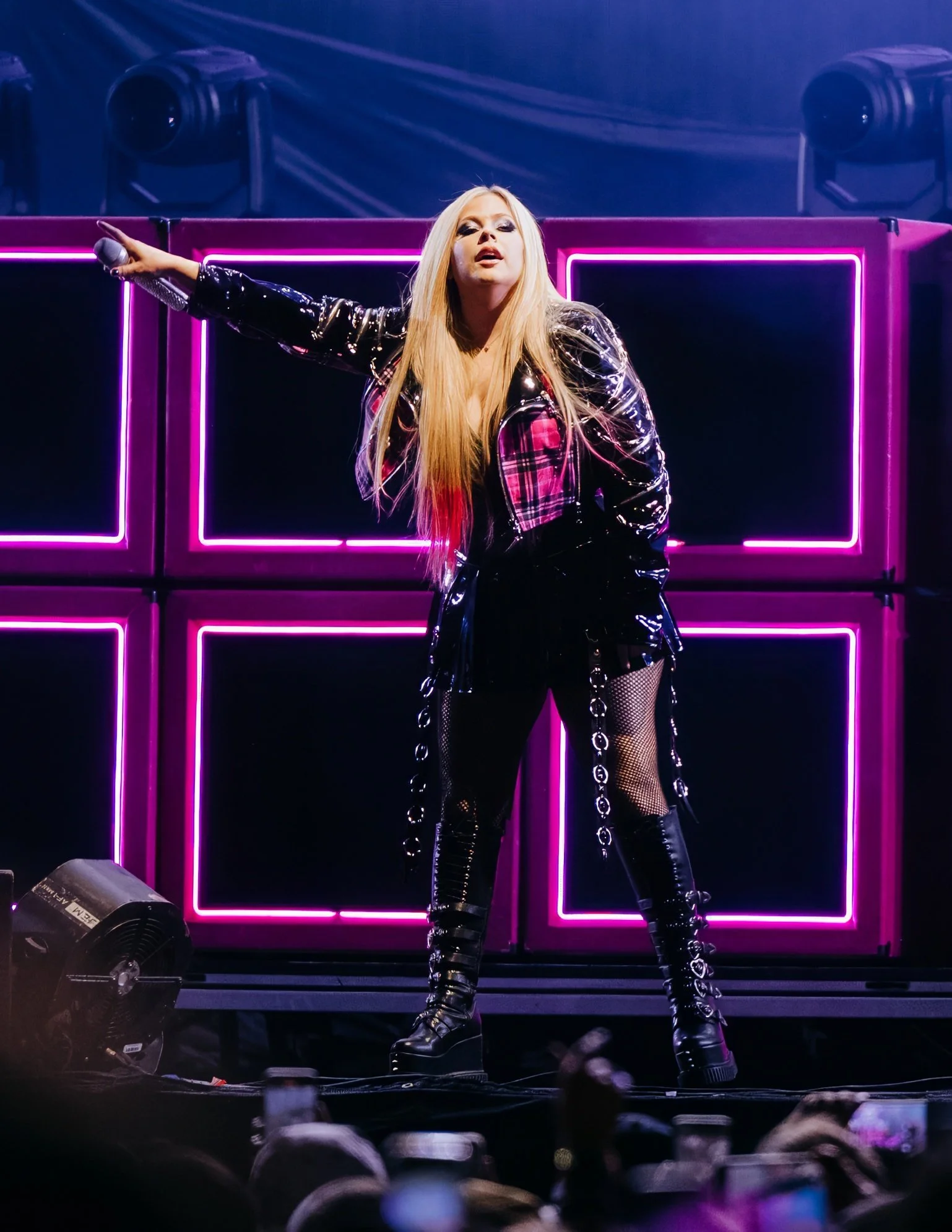

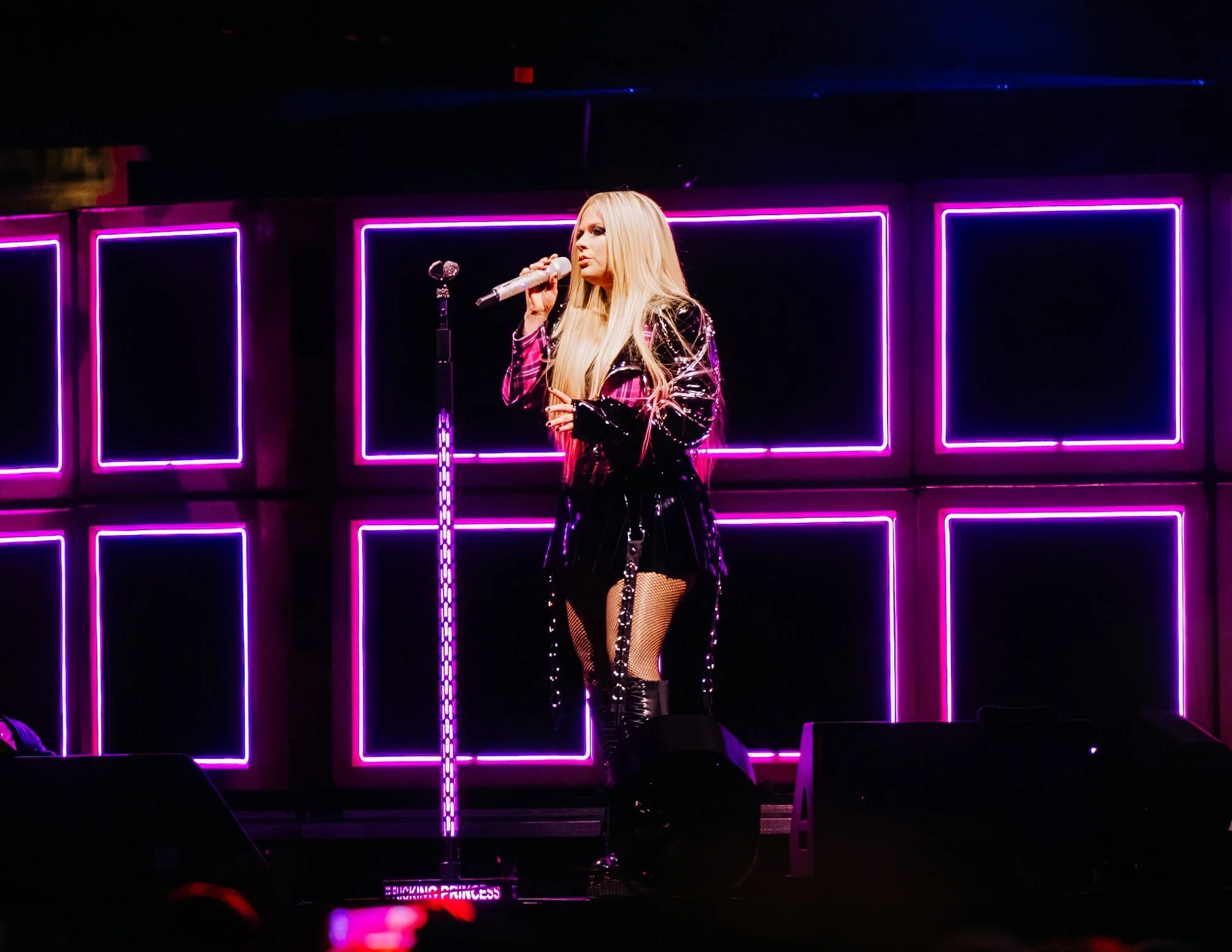
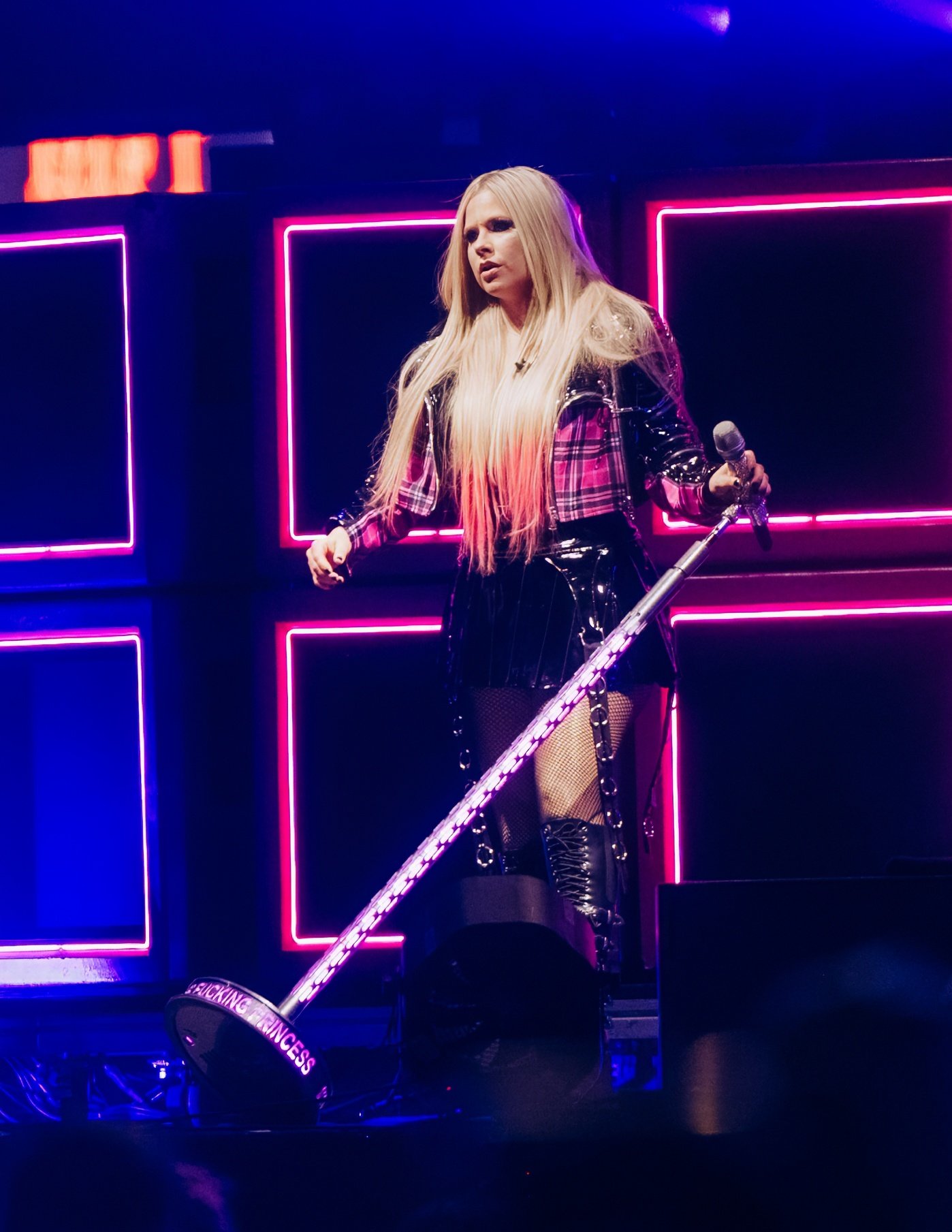

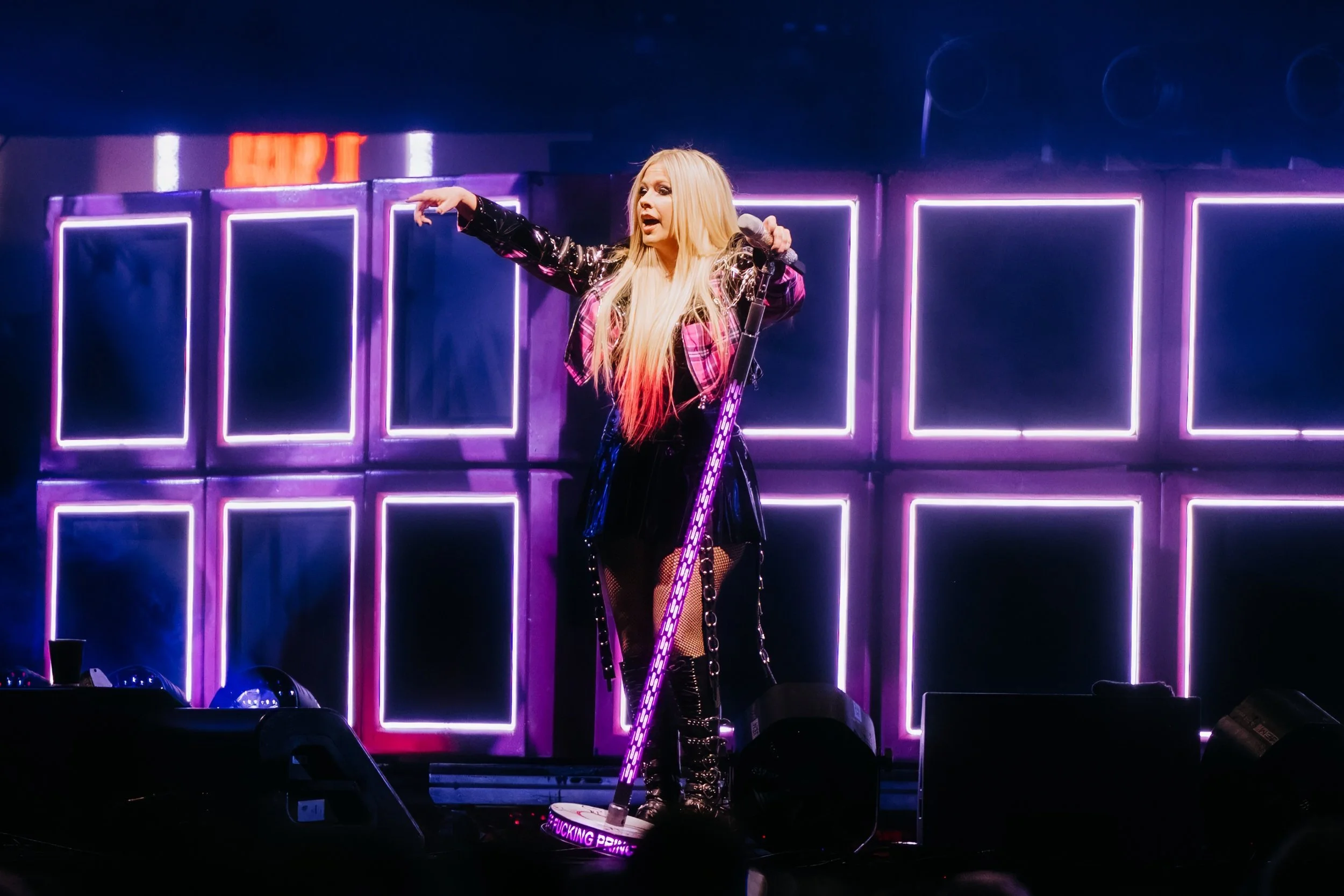
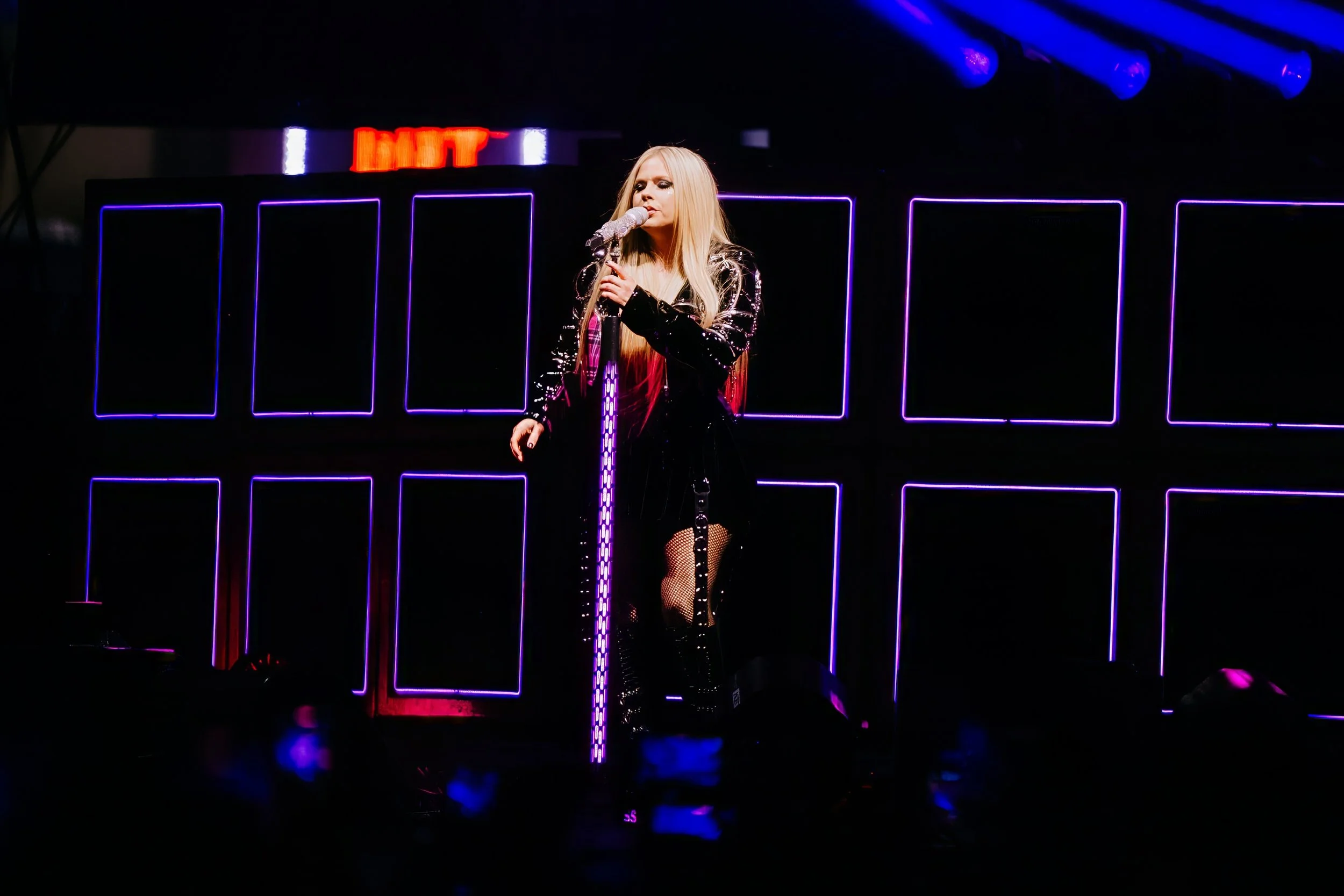
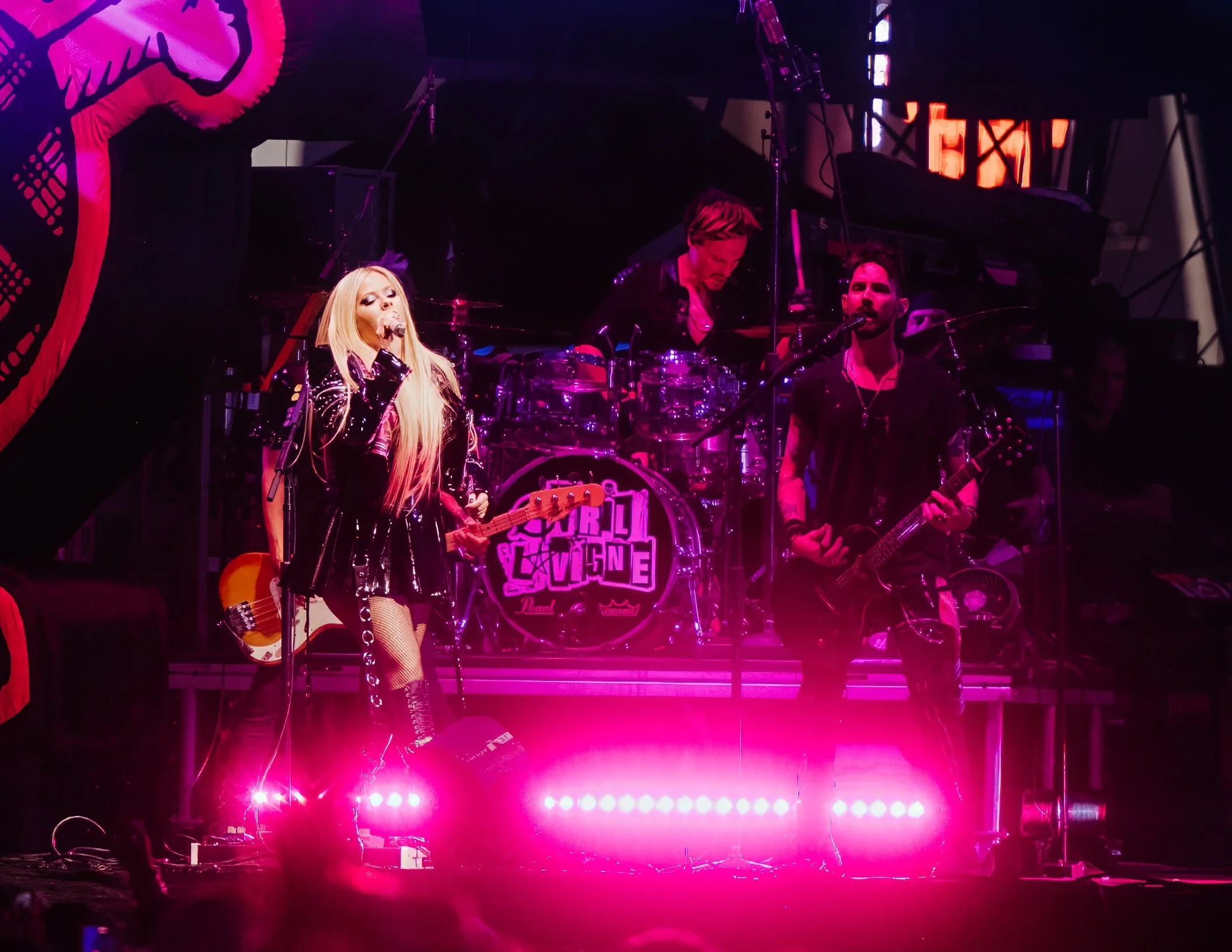
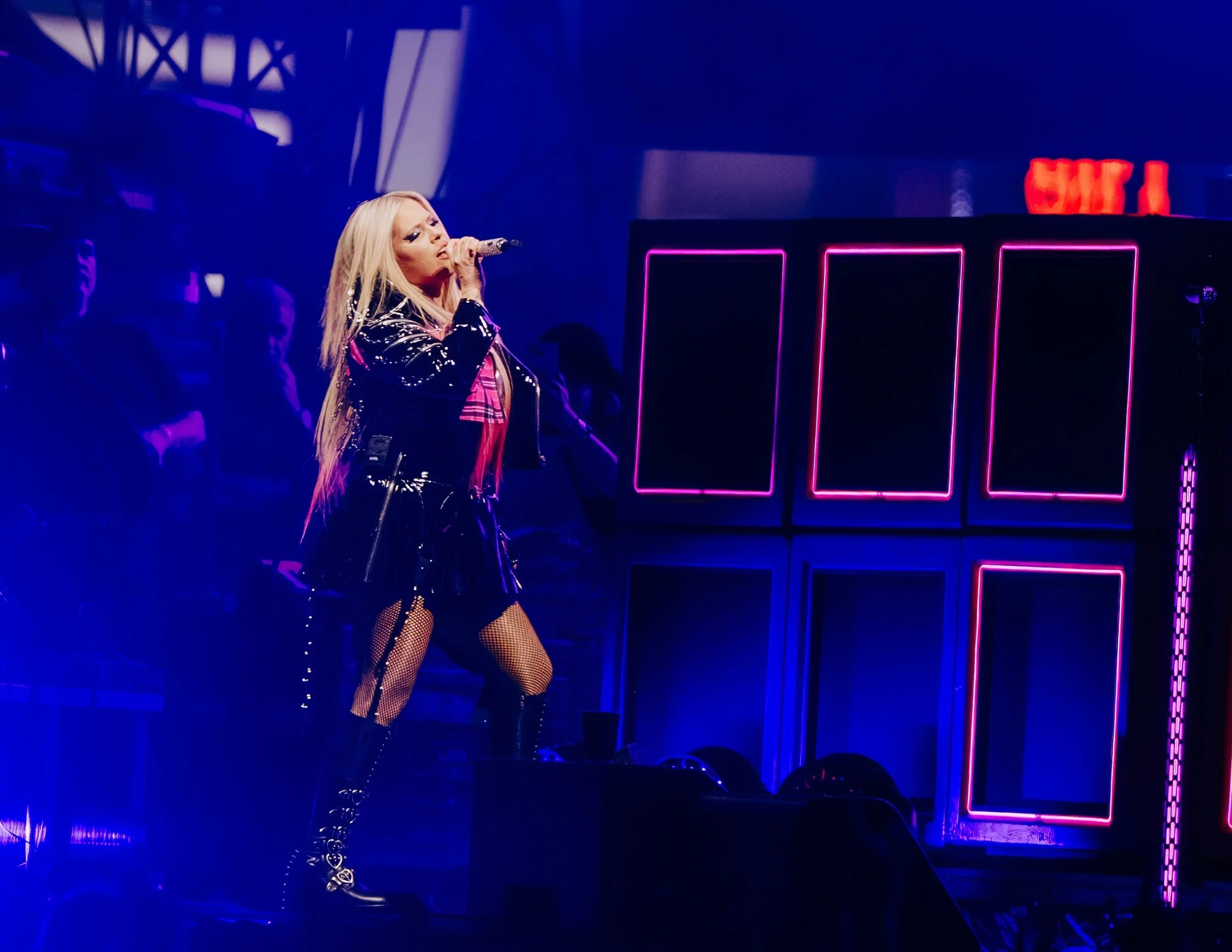
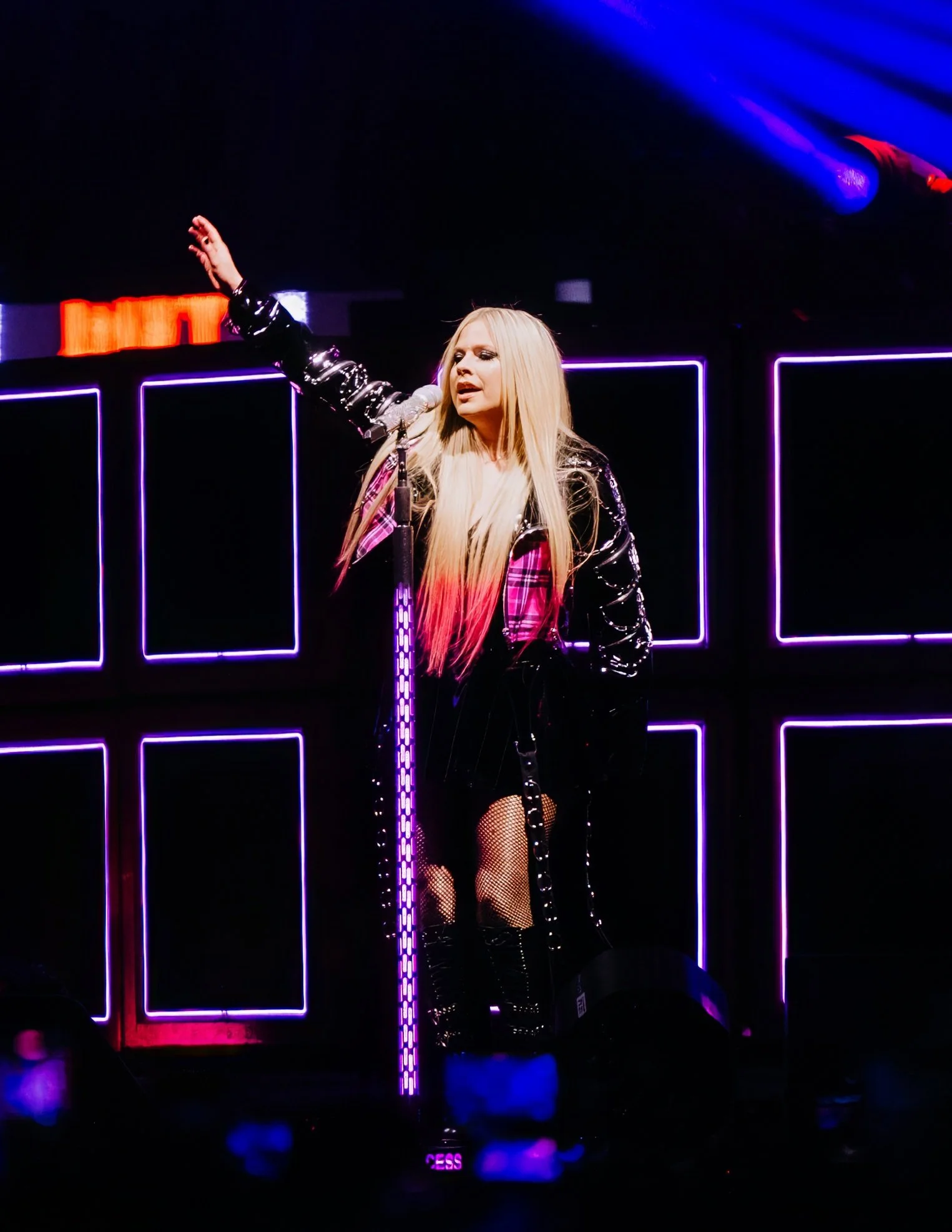
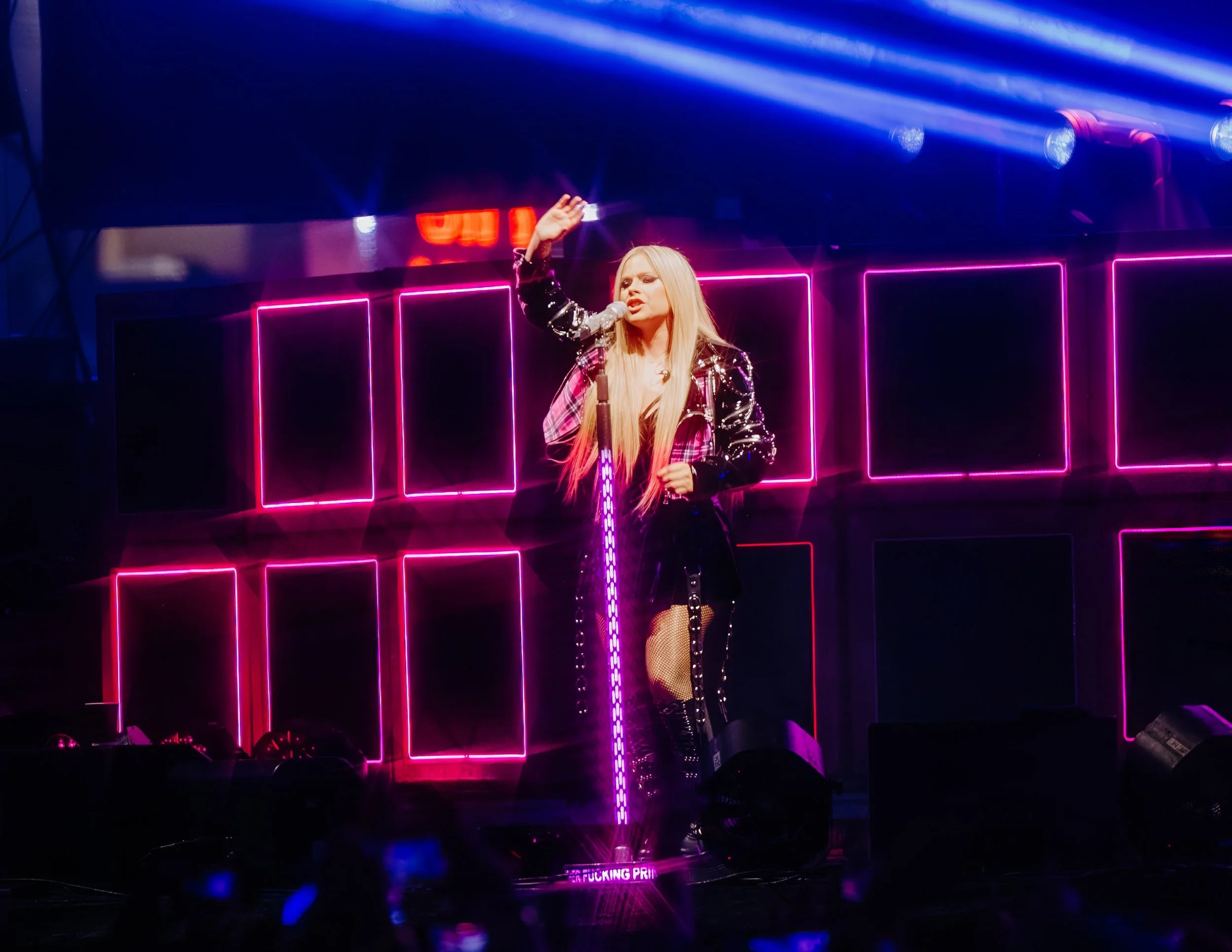
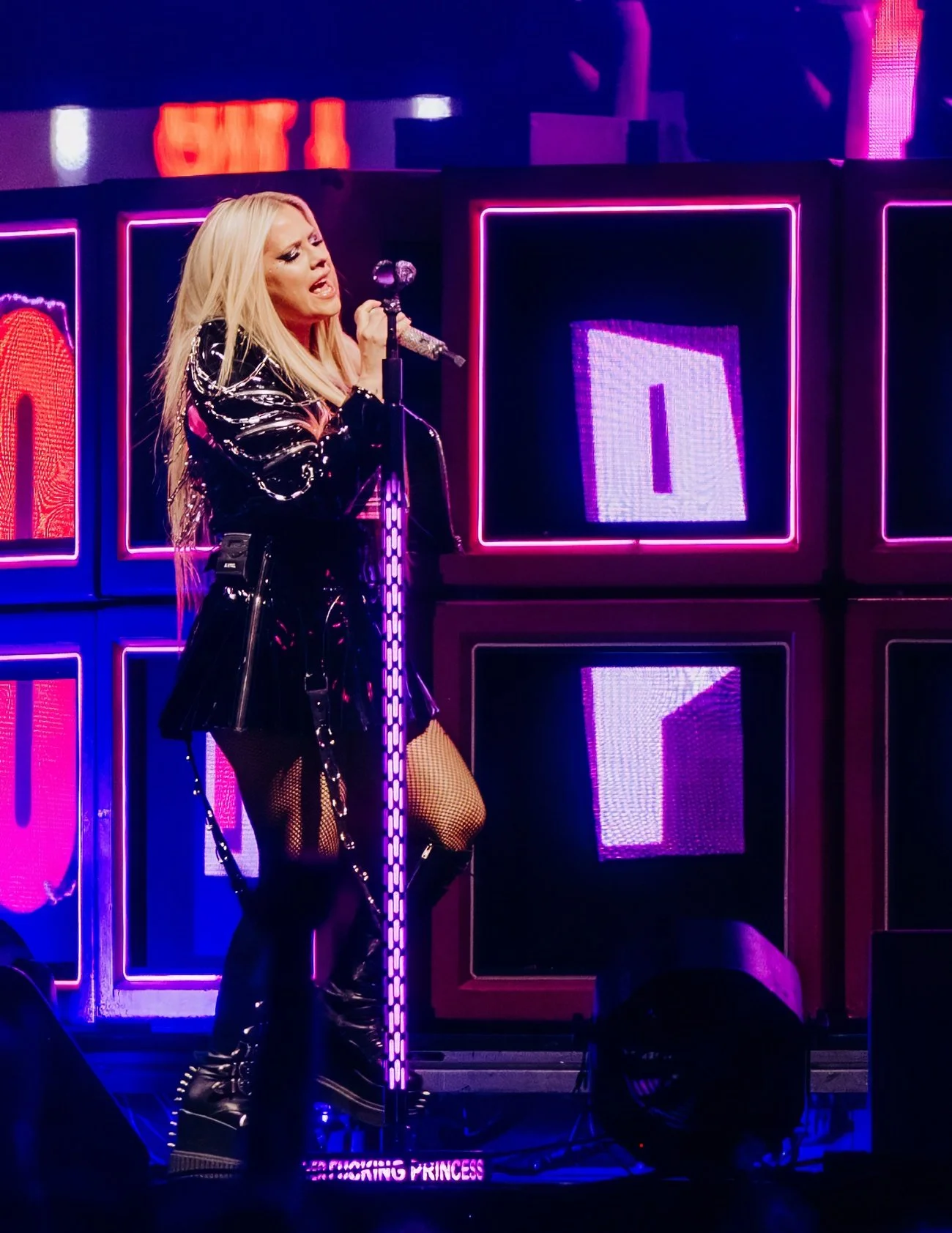
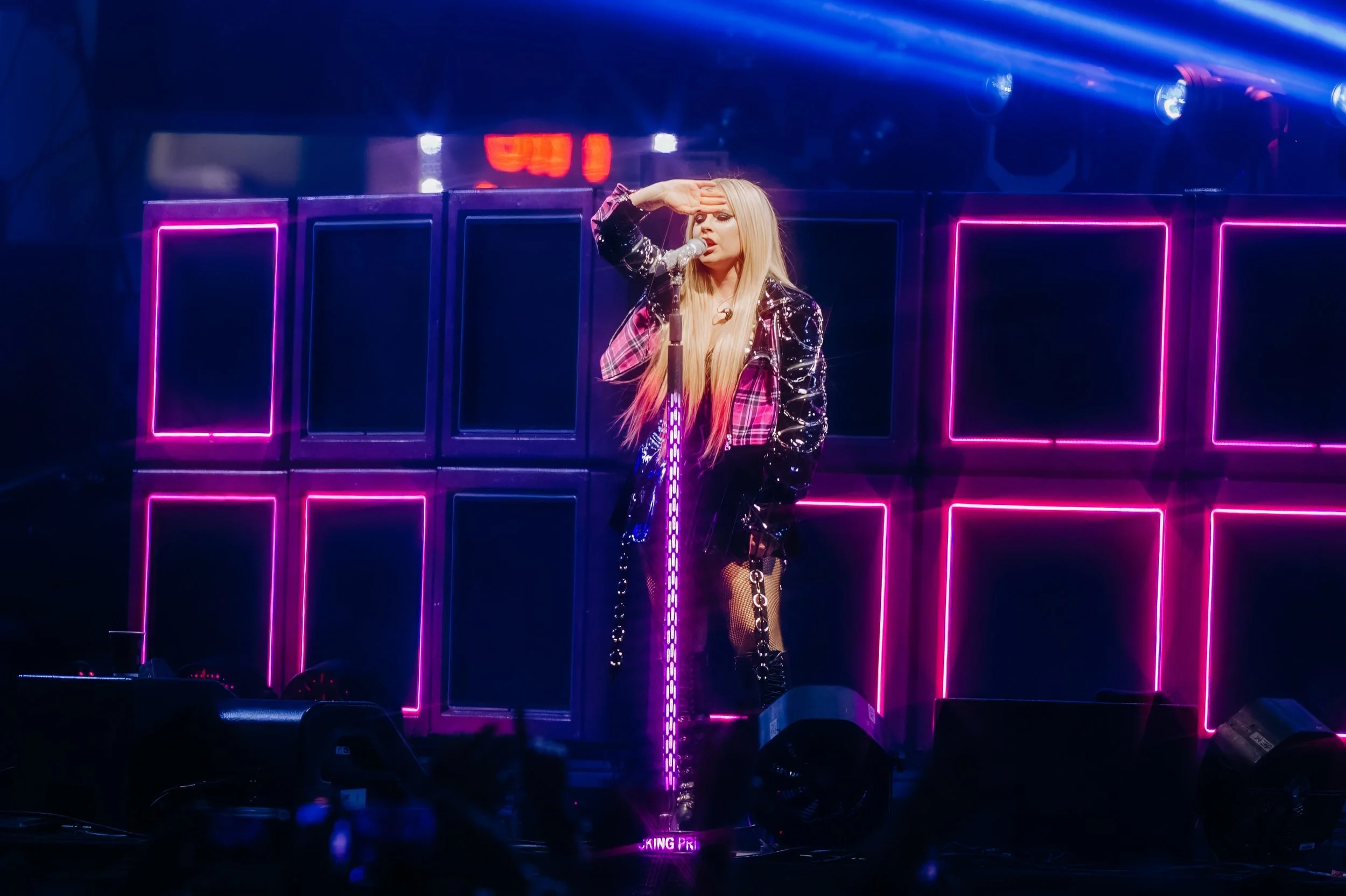

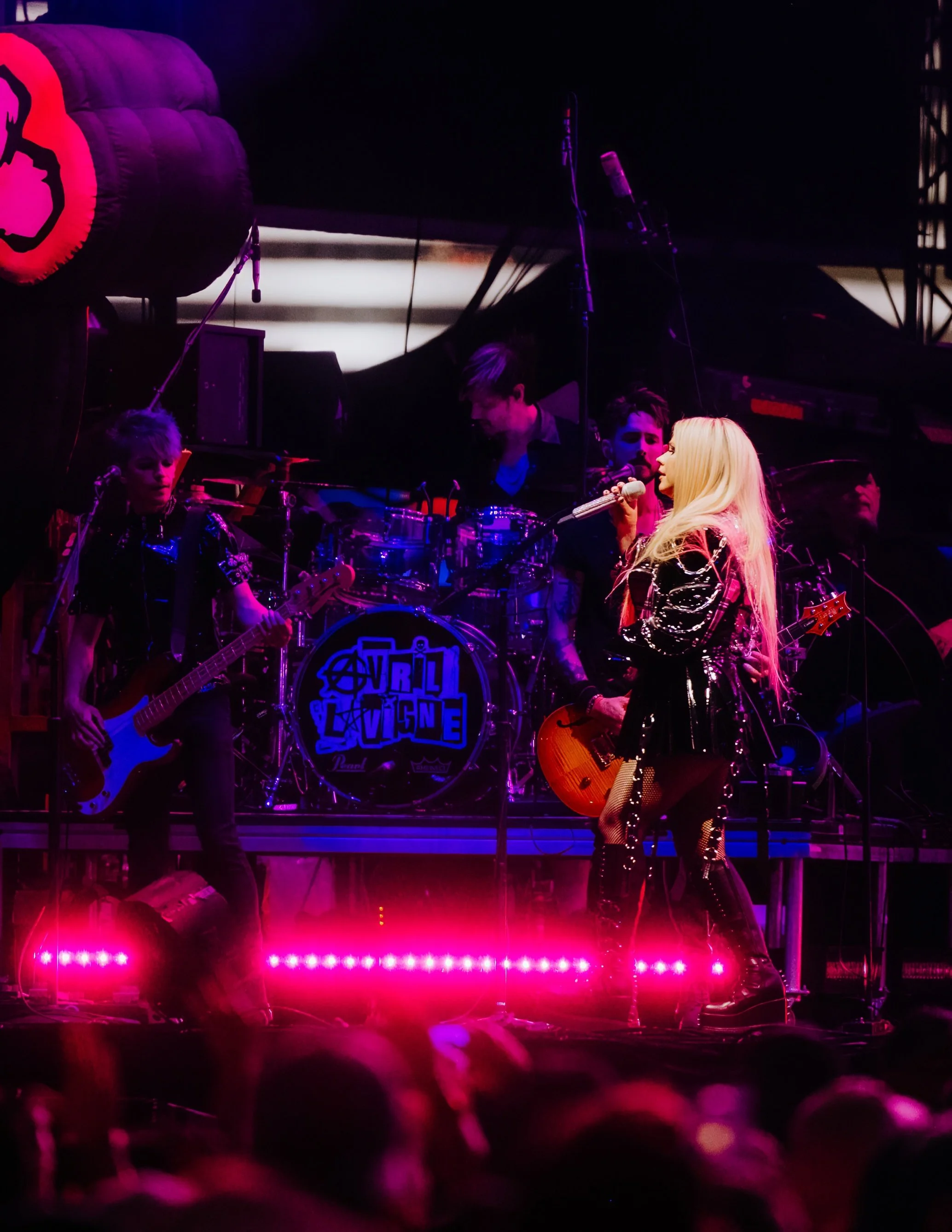
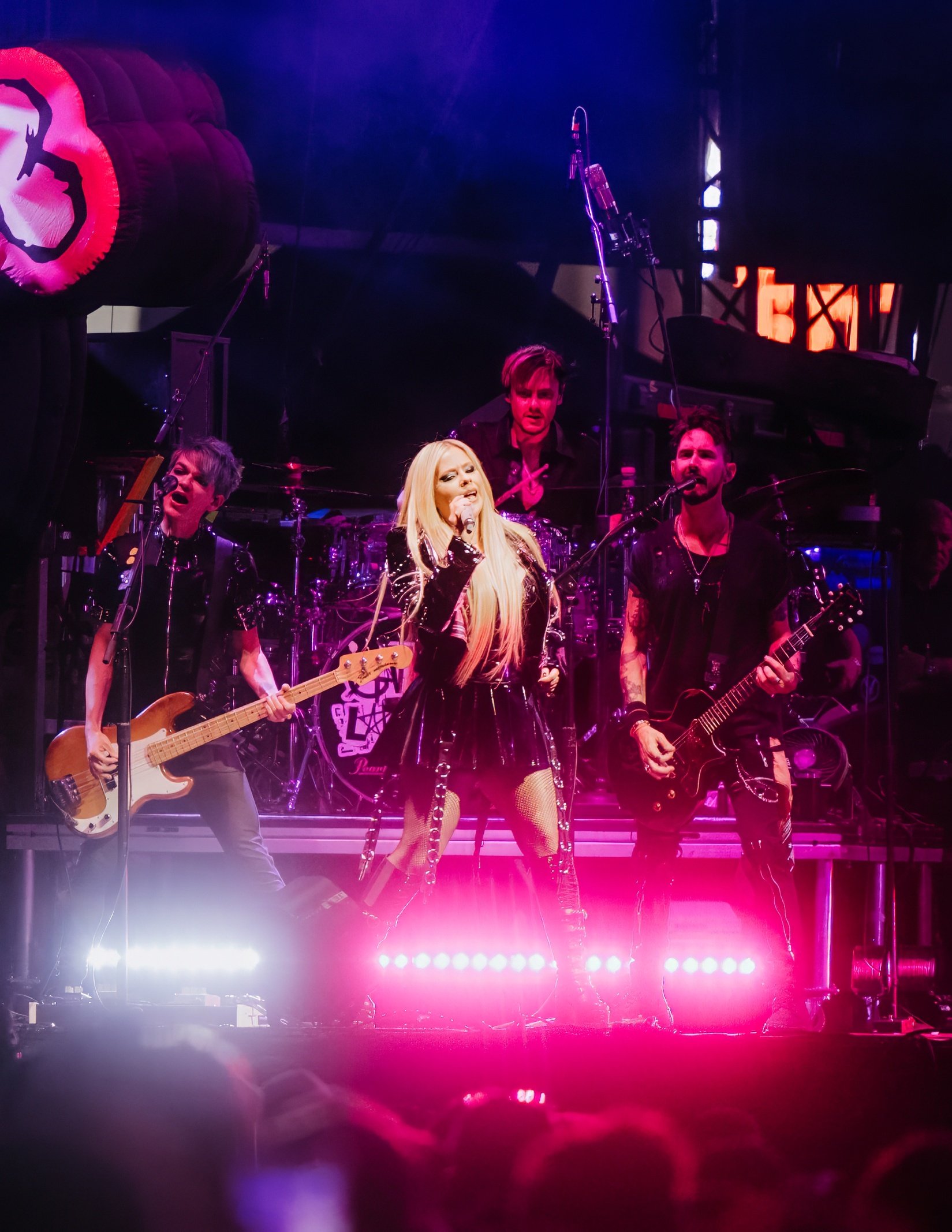


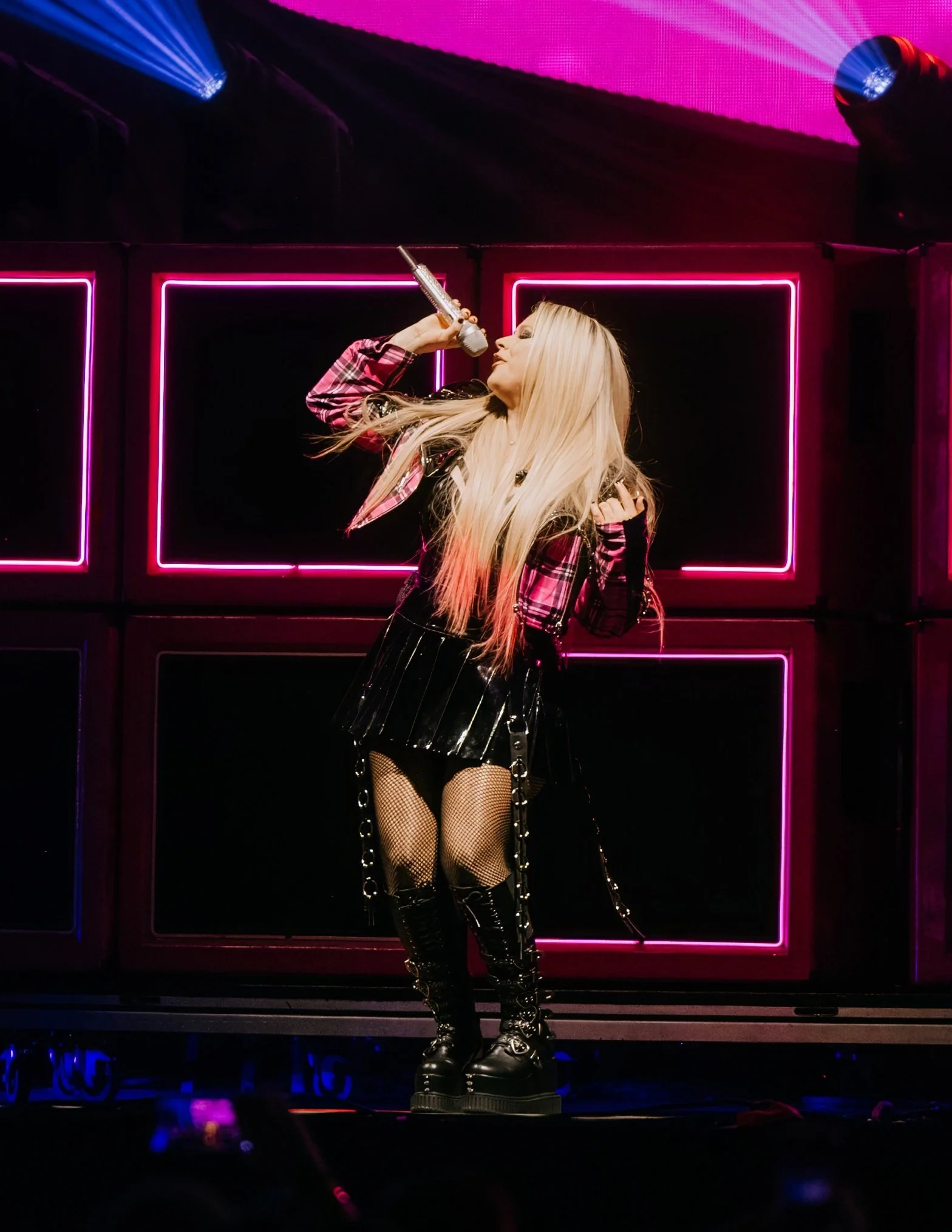

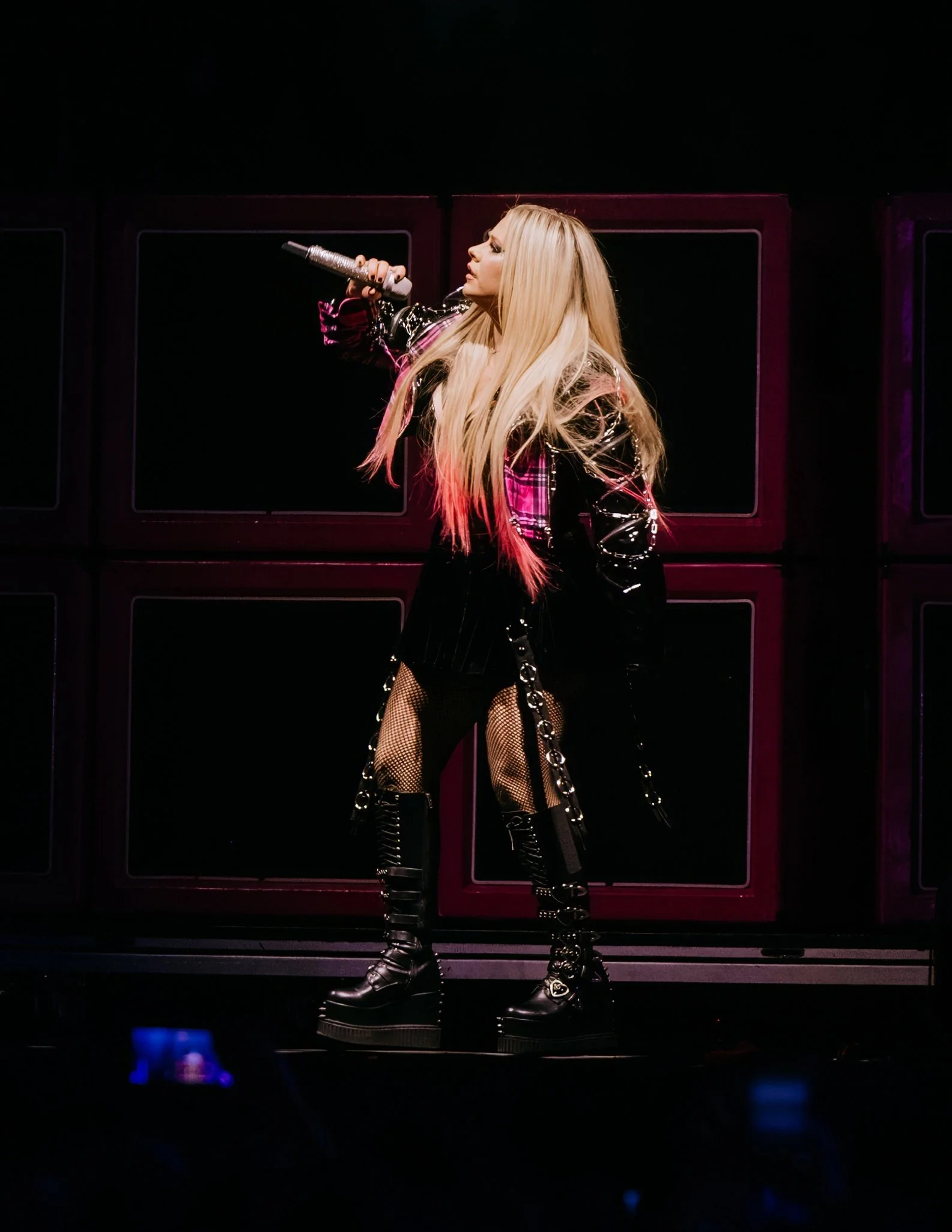
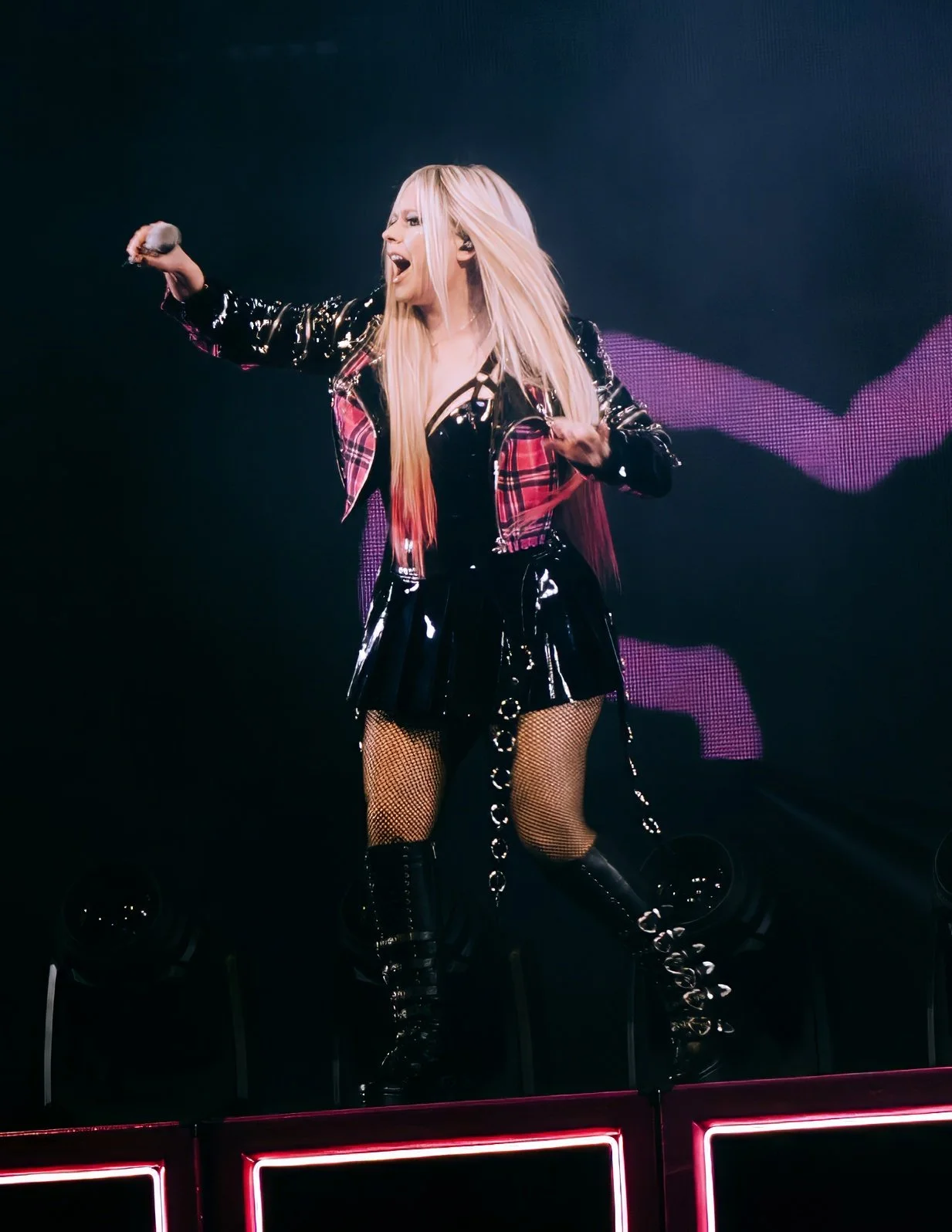
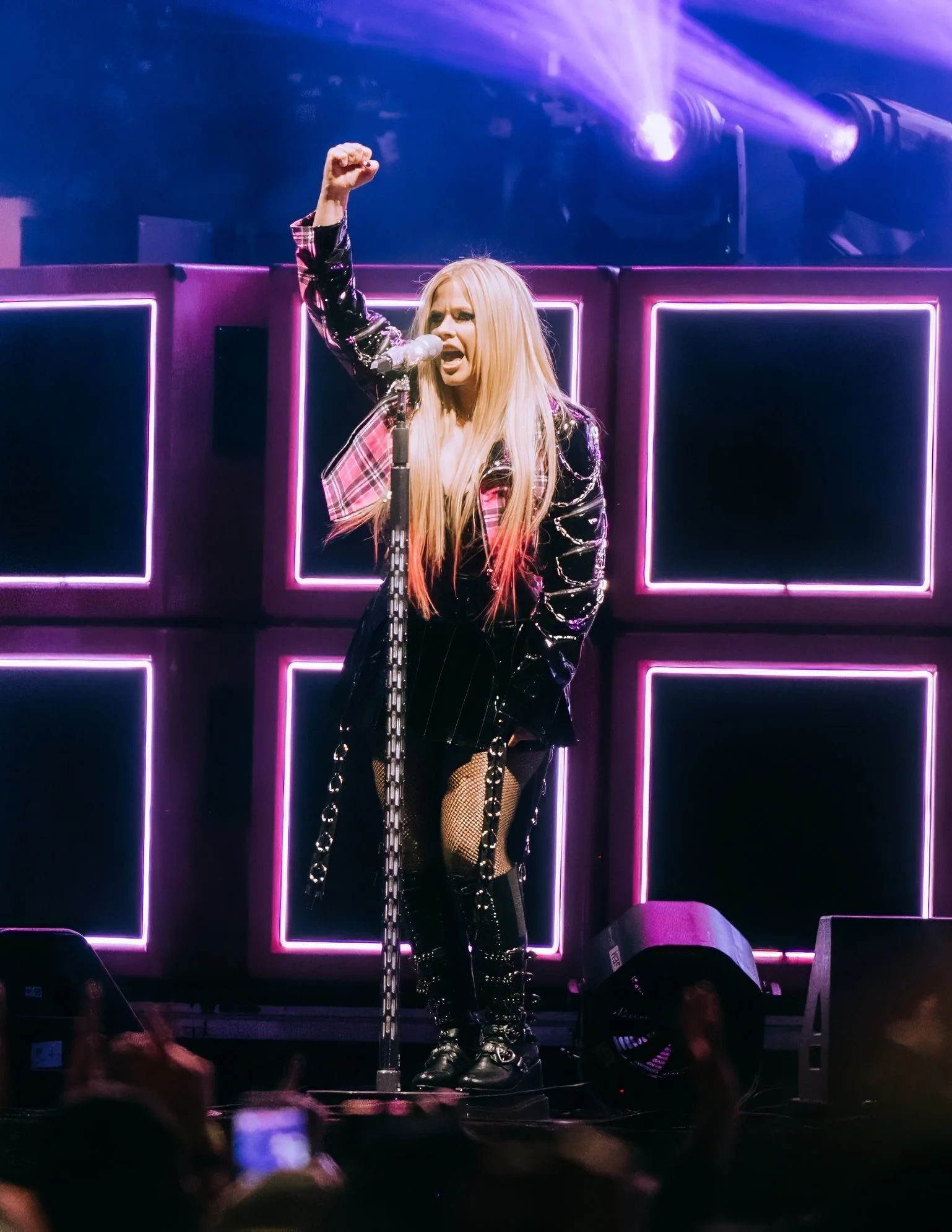
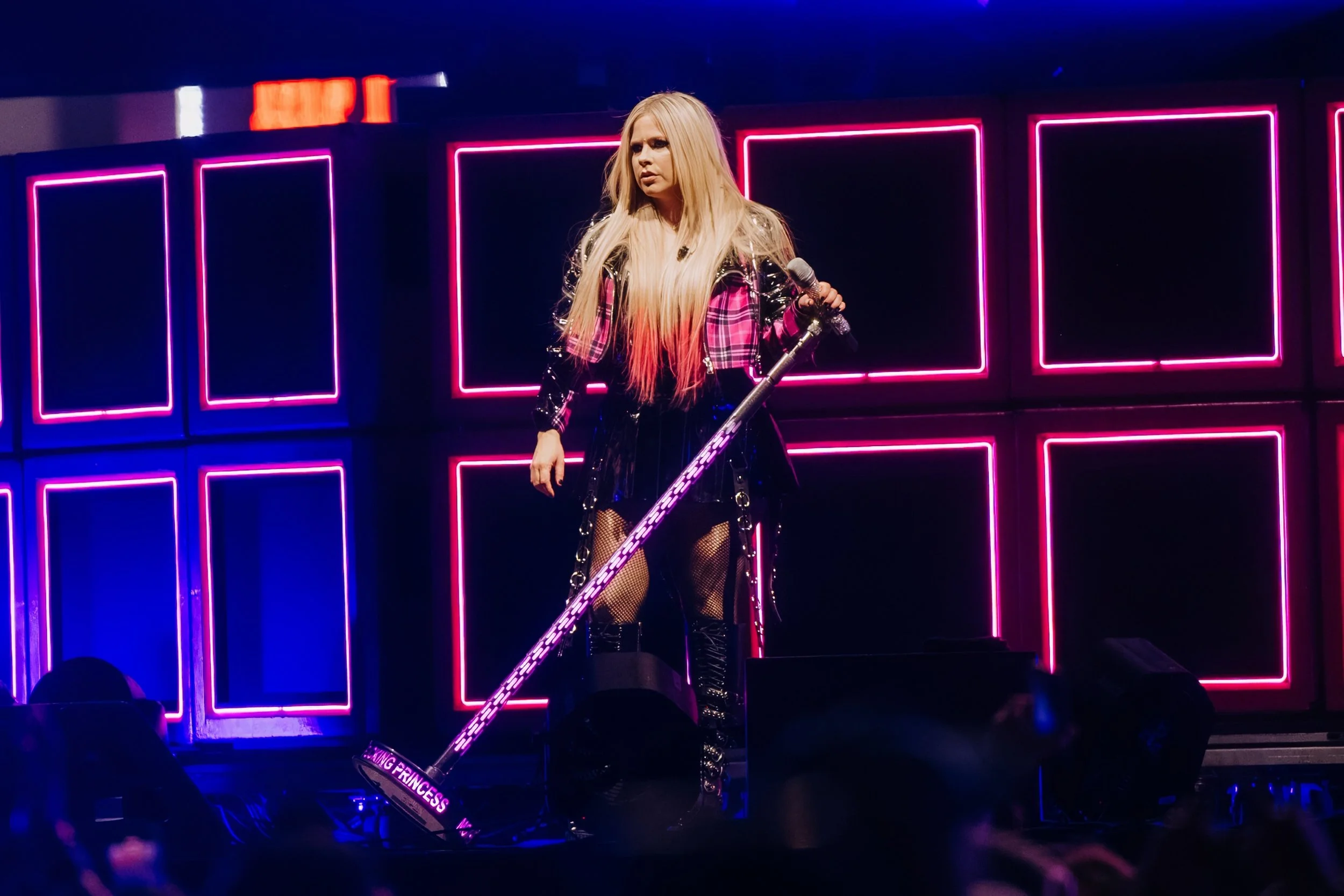
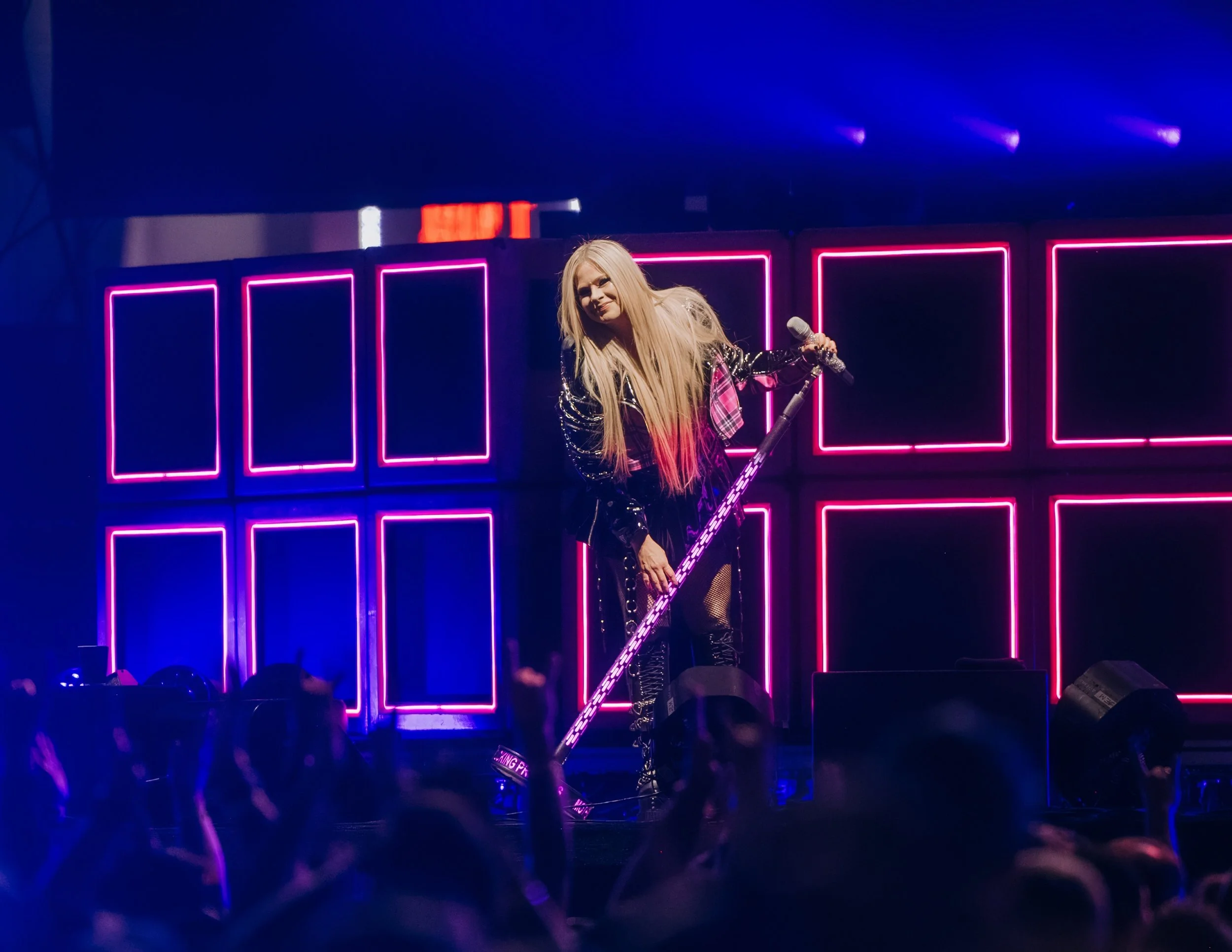

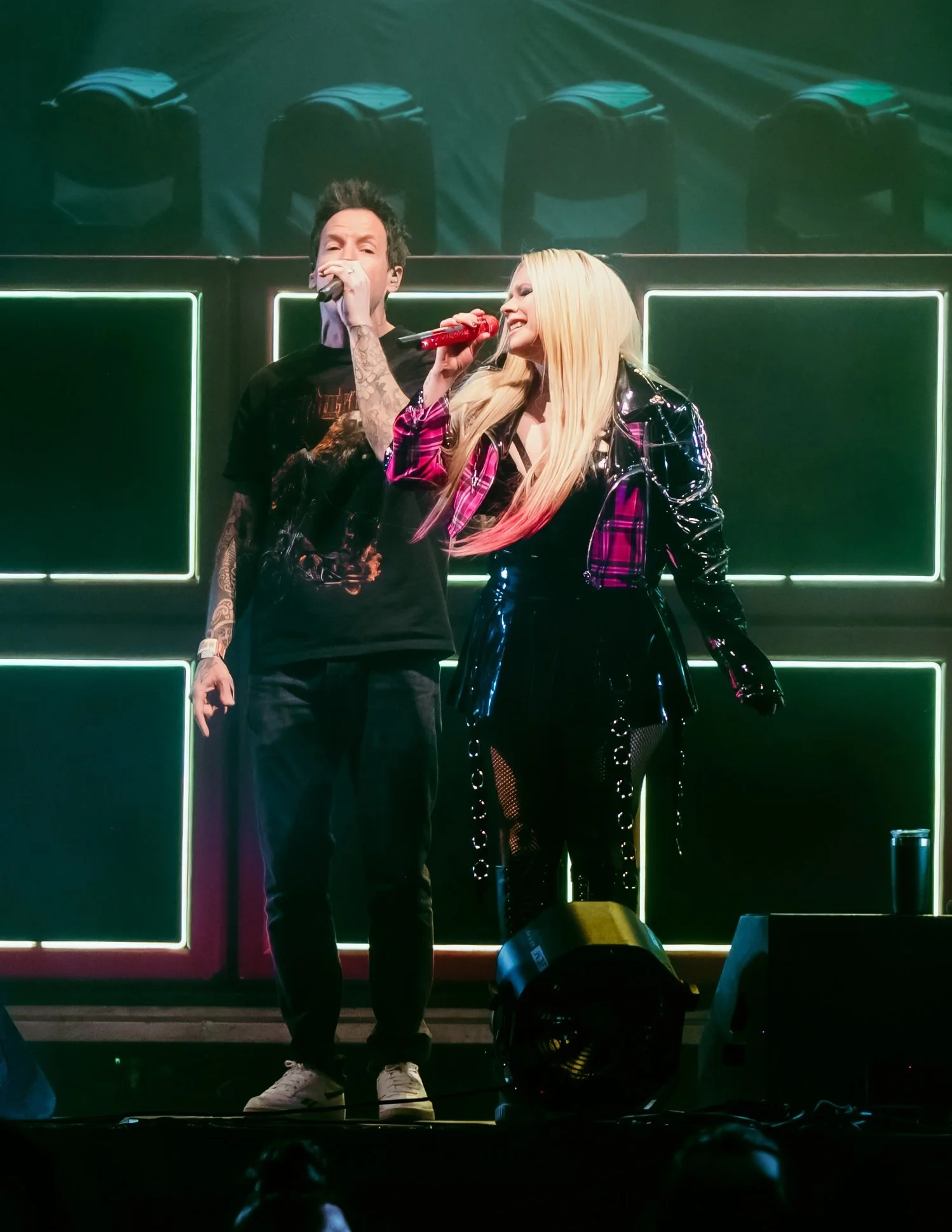
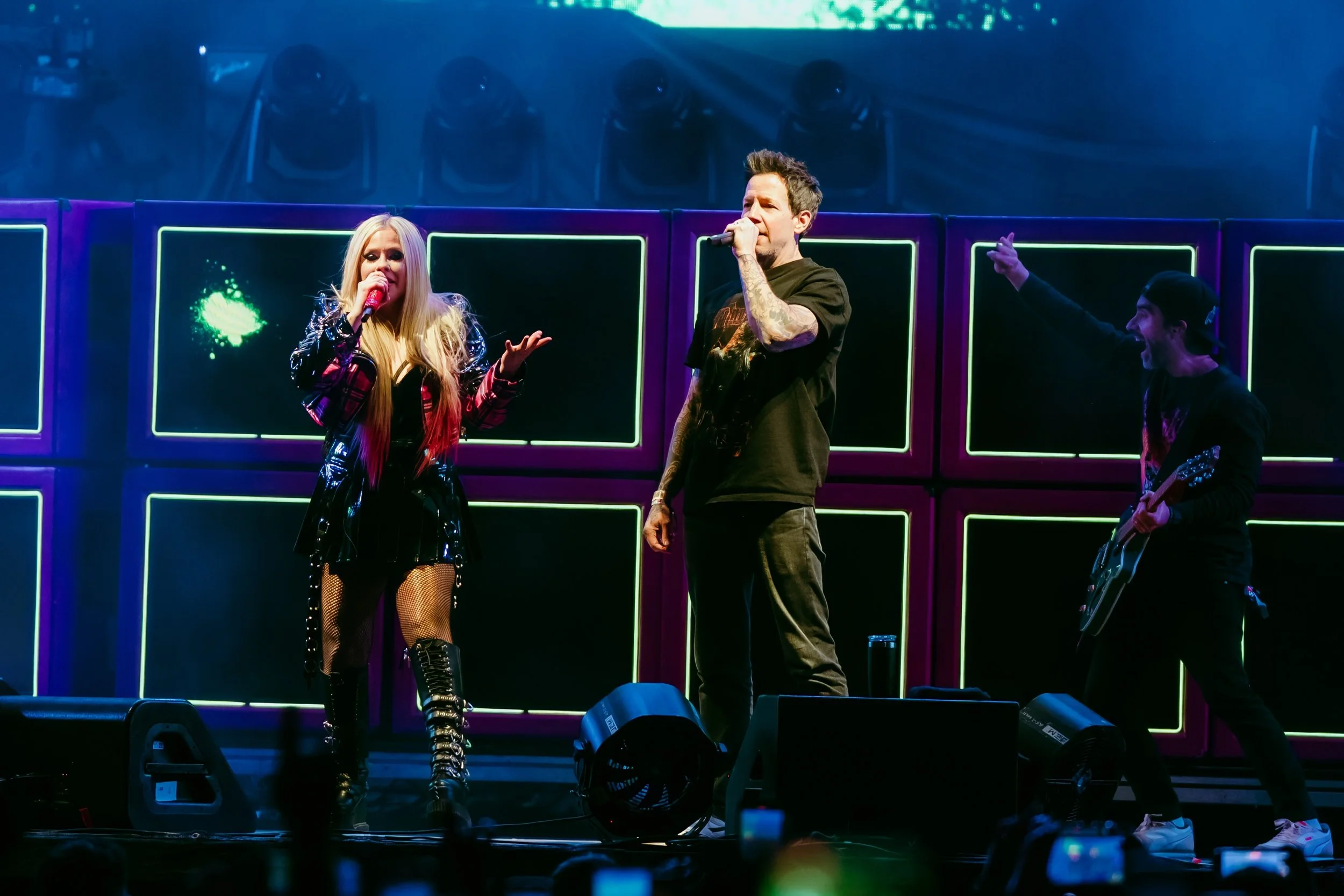
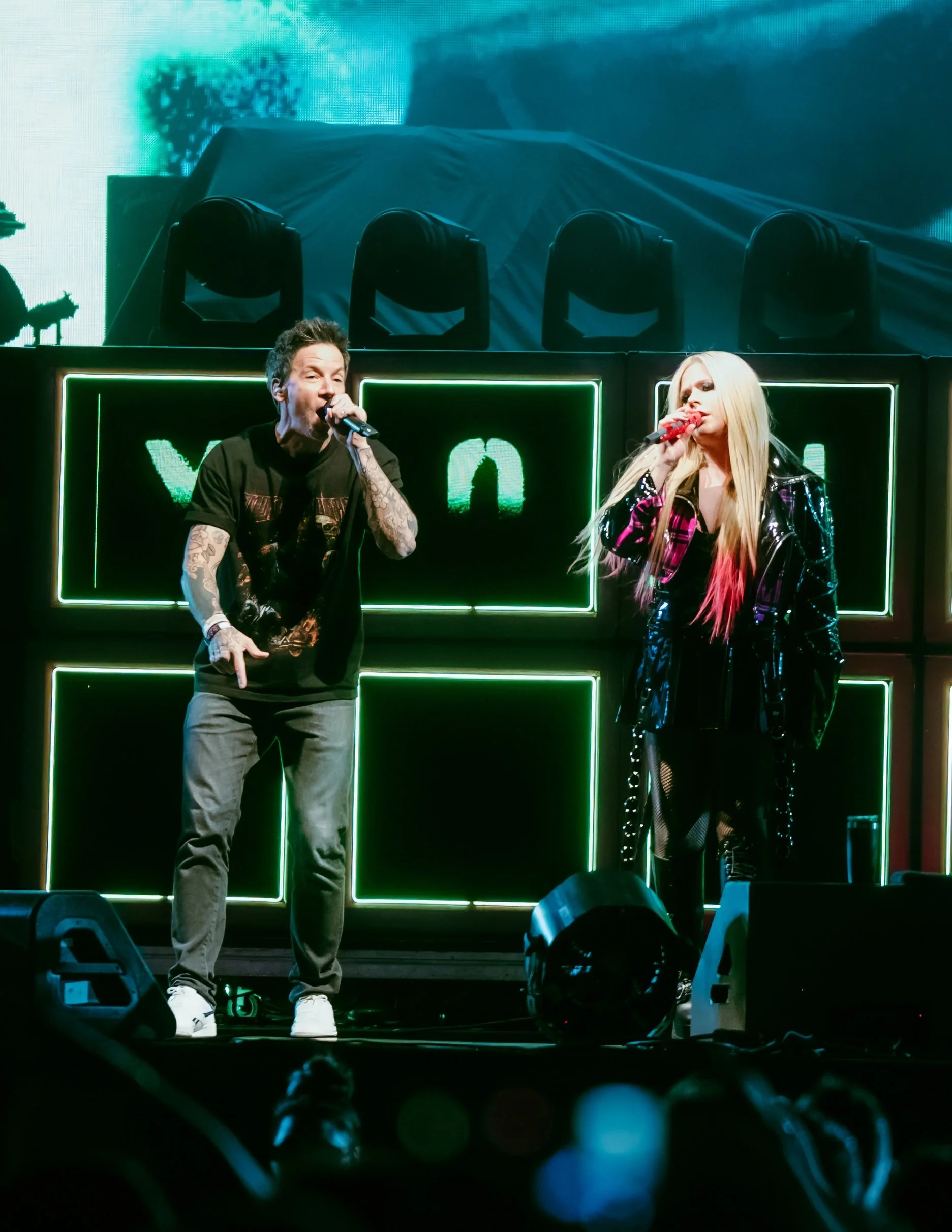
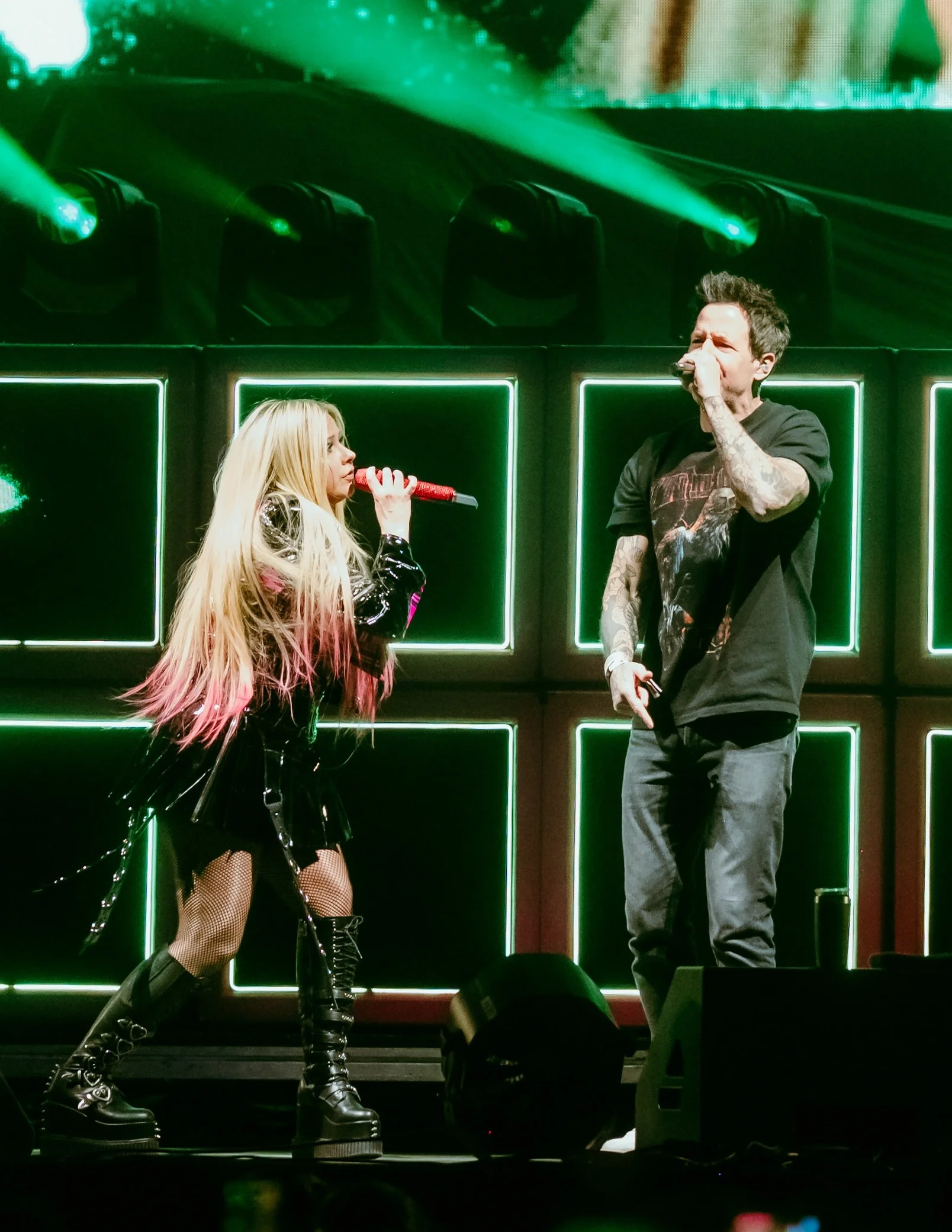

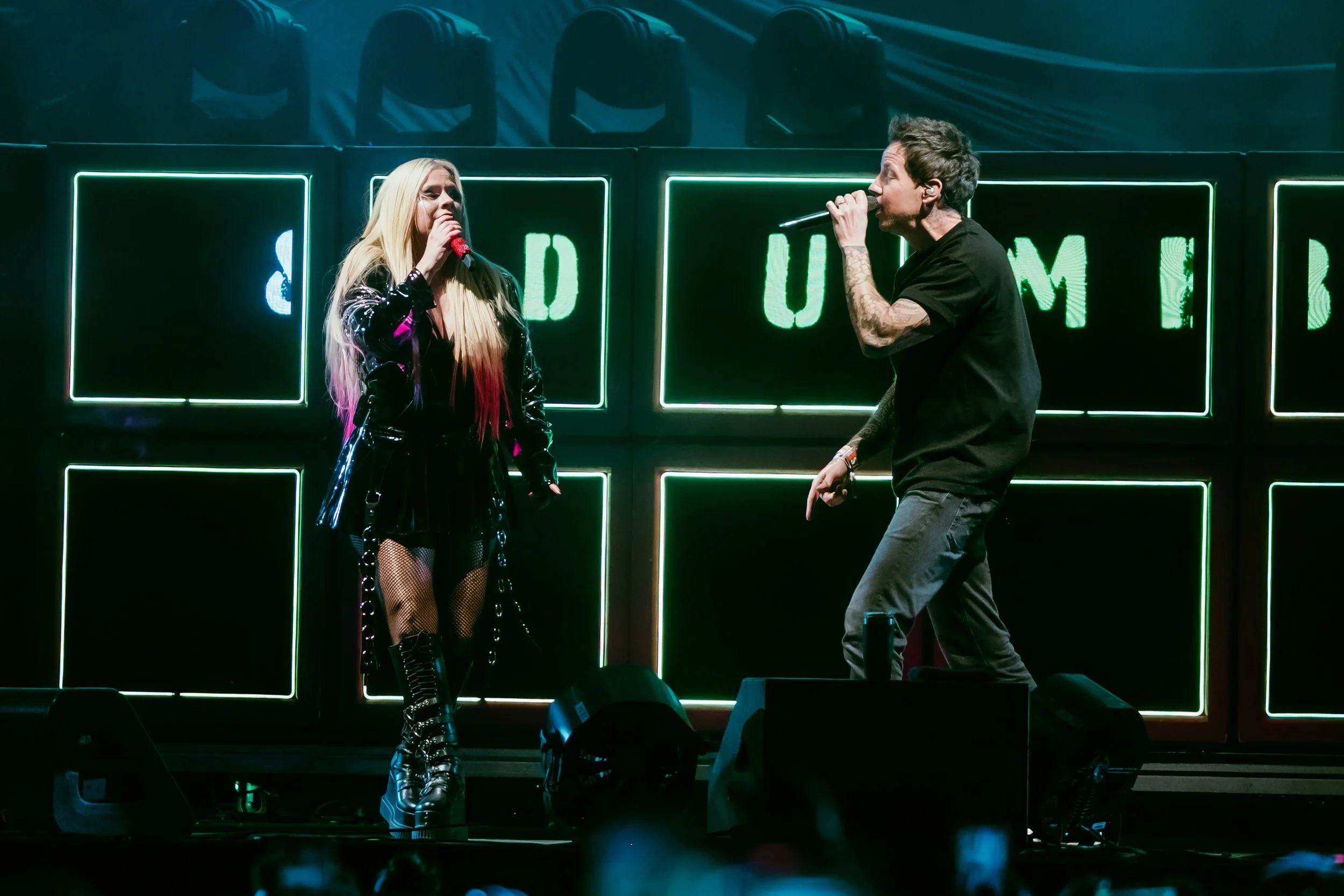
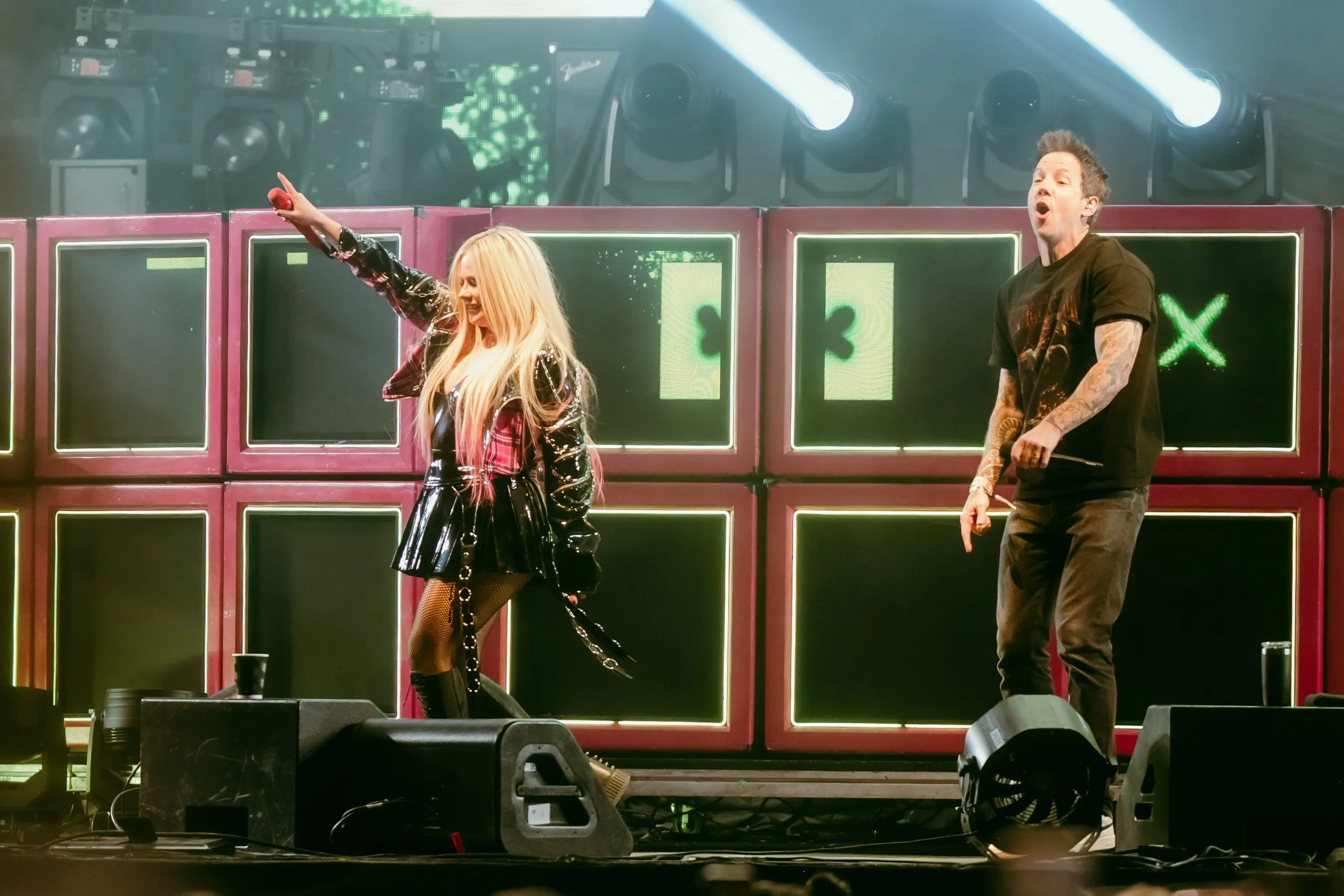
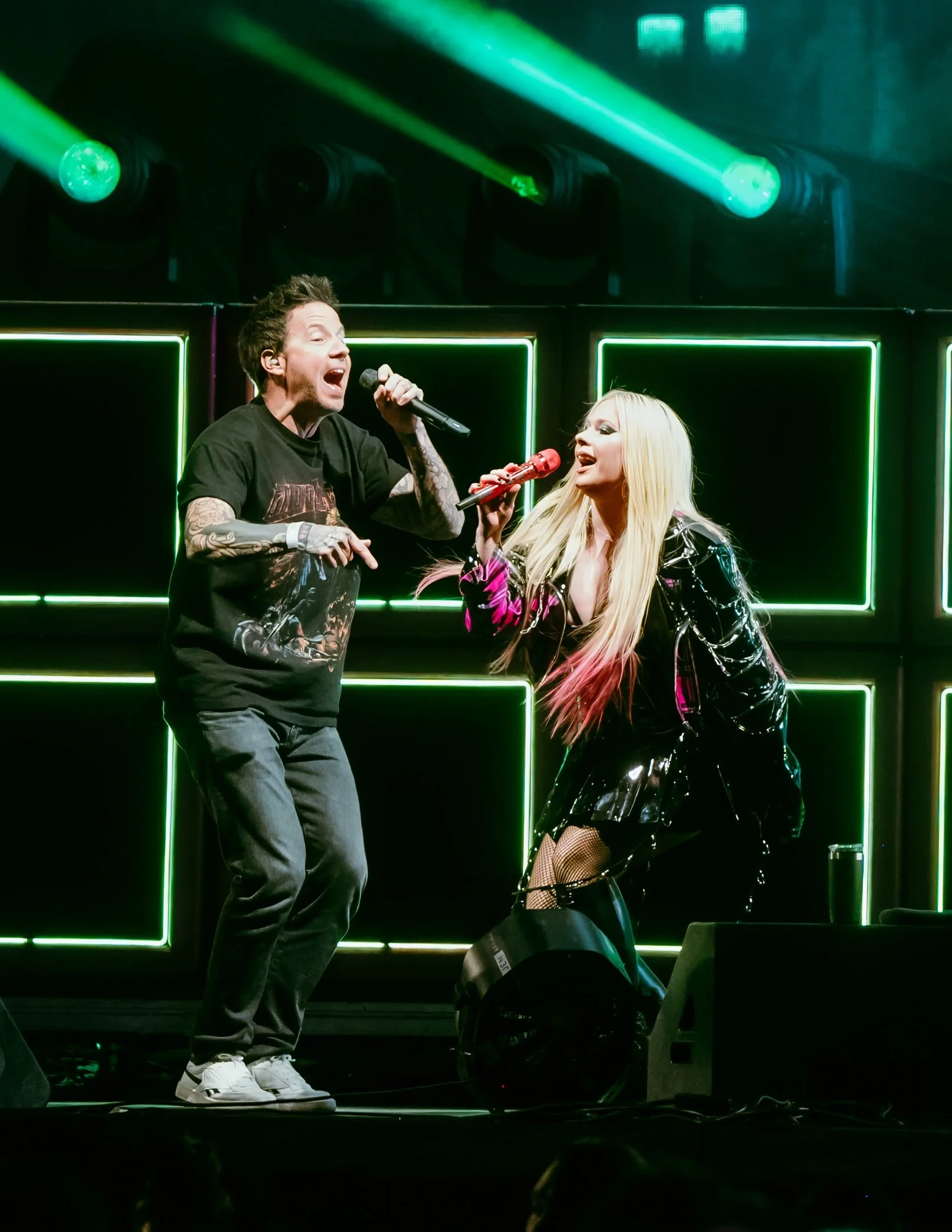
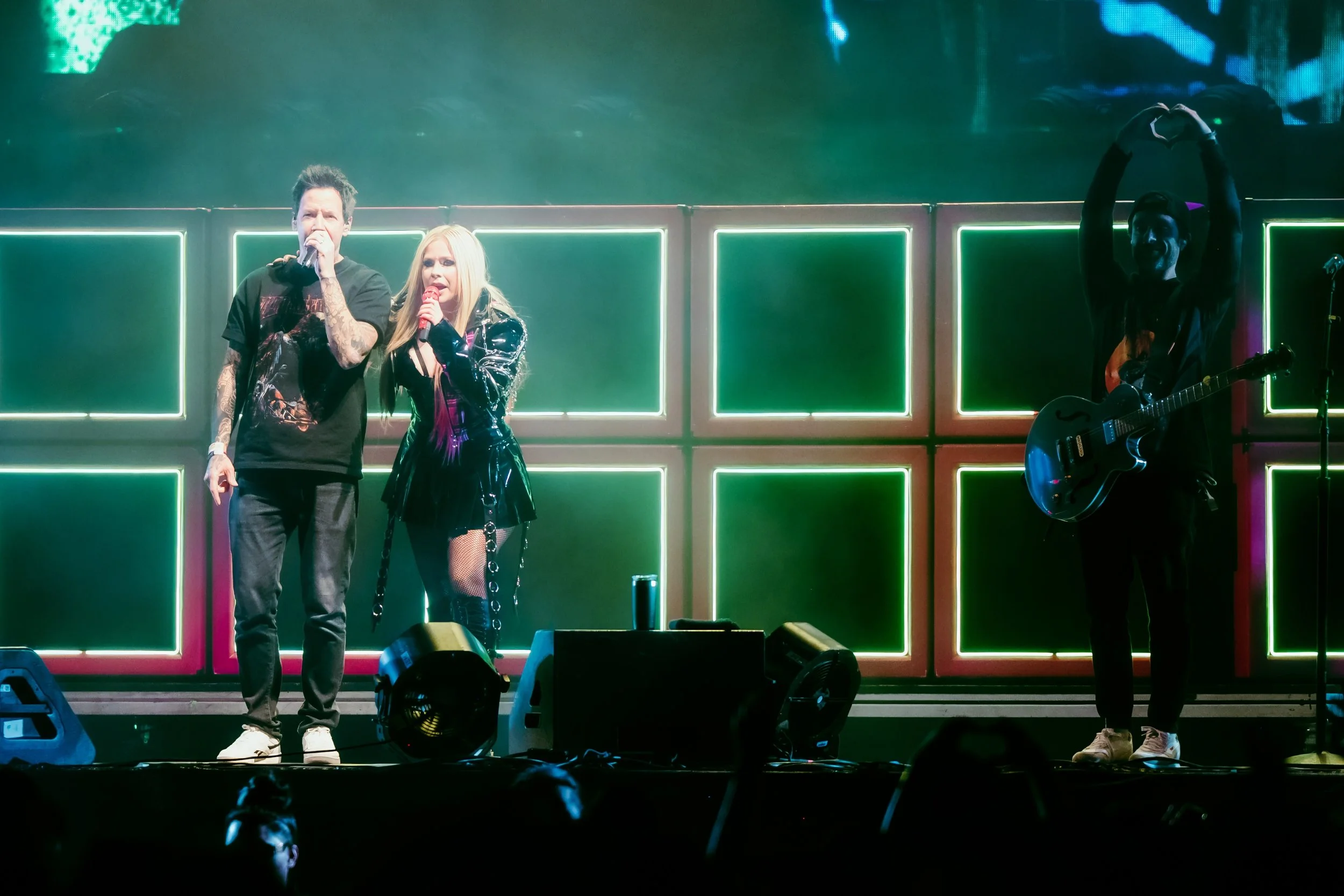
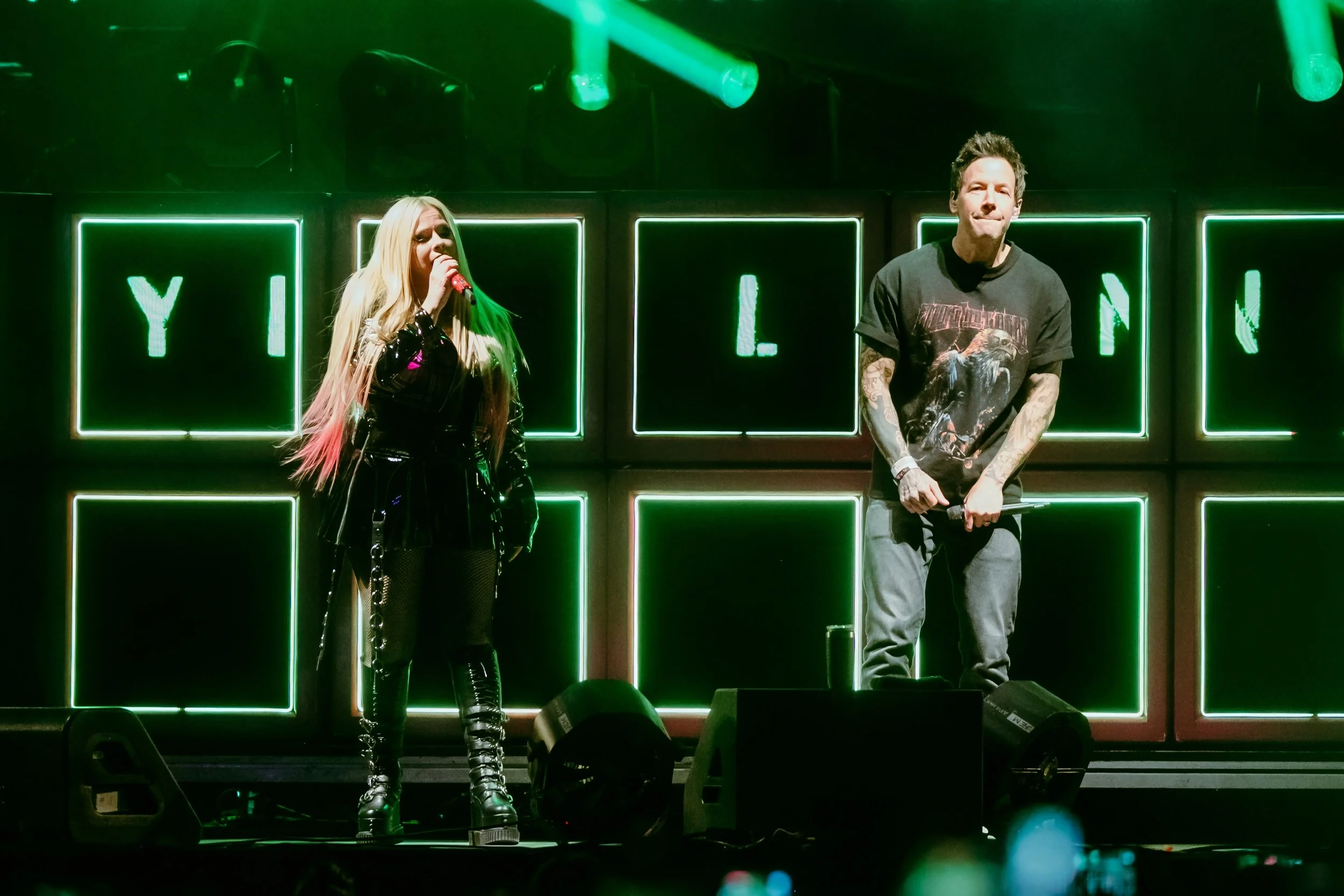
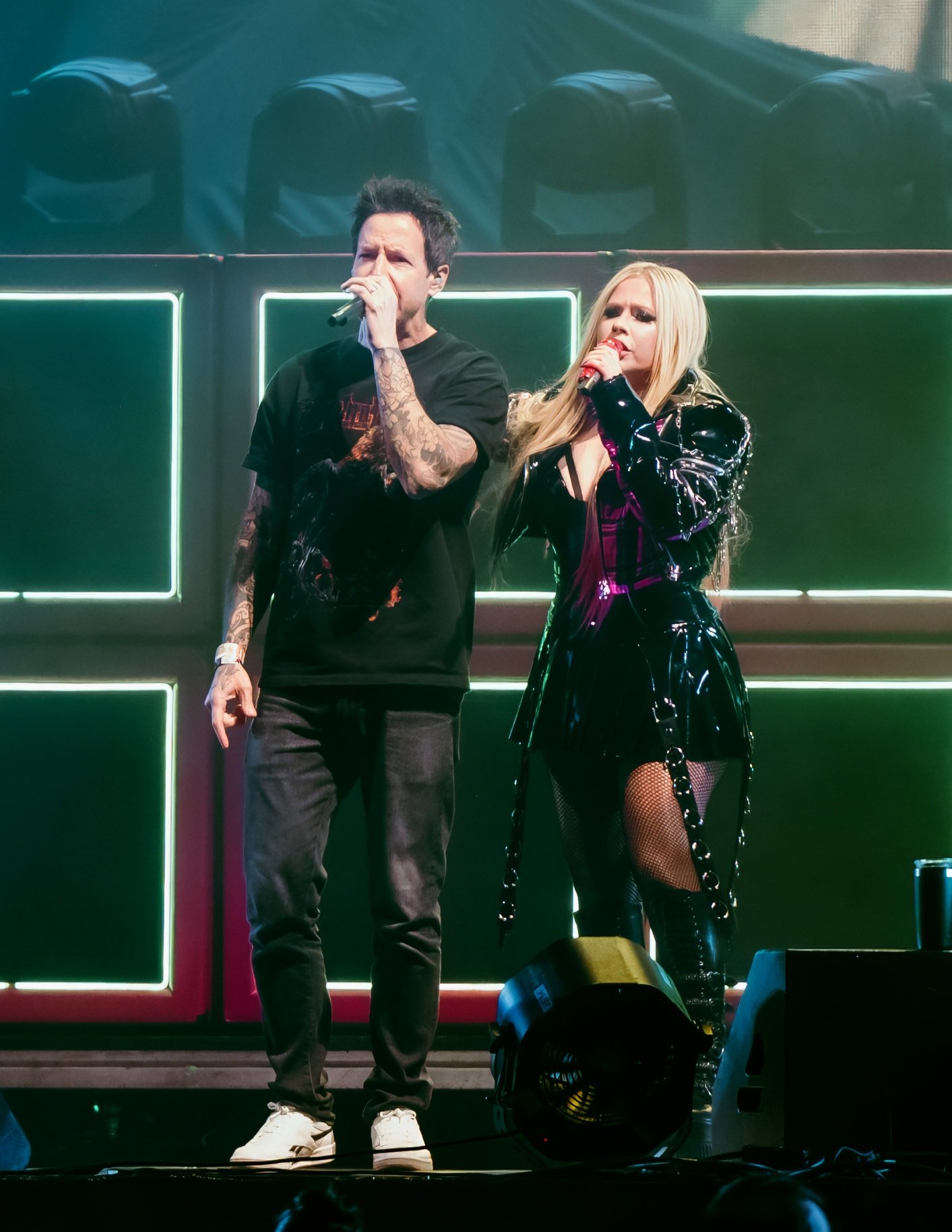




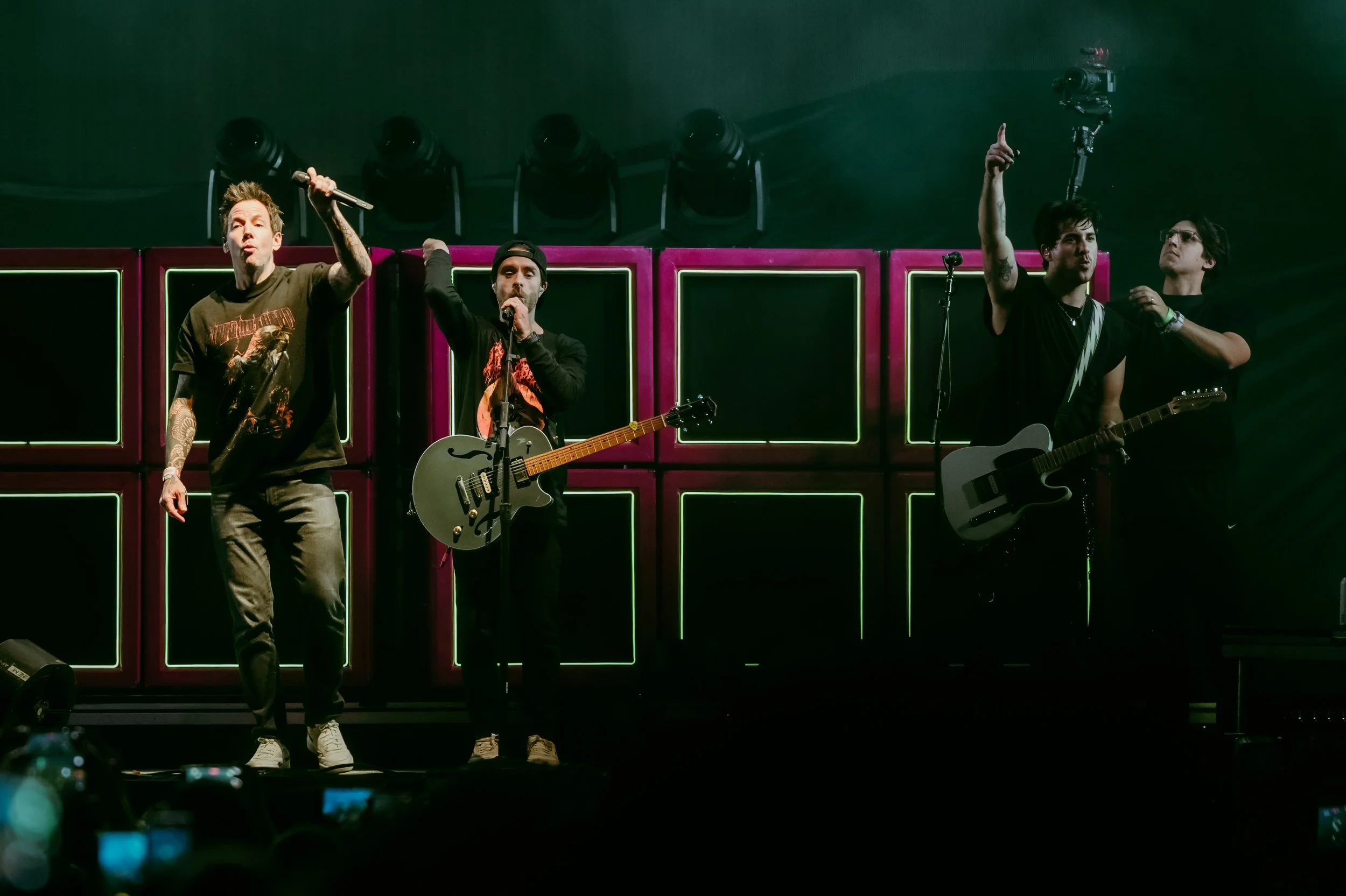
THE OFFSPRING
As the sun began to set, The Offspring took the main stage and transformed it into a spectacular display of fire and light. With a career that spans generations, their performance carried the weight of a legacy while showcasing the ease of seasoned showmen. Songs like “Self Esteem” and “The Kids Aren’t Alright” resonated with the same intensity they did decades ago, enhanced by bursts of pyrotechnics that illuminated the dusk. Their closing number erupted into fireworks—a visual exclamation point to a set that demonstrated that punk’s energy is eternal.
The Used
Veterans The Used turned their set into one of the most talked-about moments of the weekend. Mid-performance, a large flag that read “Freedom for Palestine” dropped down behind the drum riser, transforming a high-energy rock show into a powerful statement of solidarity. The crowd reacted immediately, cheering, raising fists, and lifting phones high to capture the moment.
Musically, the band tore through their catalog with the ferocity and emotion that has defined them for over two decades, reminding everyone why they remain one of the most enduring forces in post-hardcore. Their performance was not just entertainment; it was a statement, highlighting that punk's core has always been connected to protest.



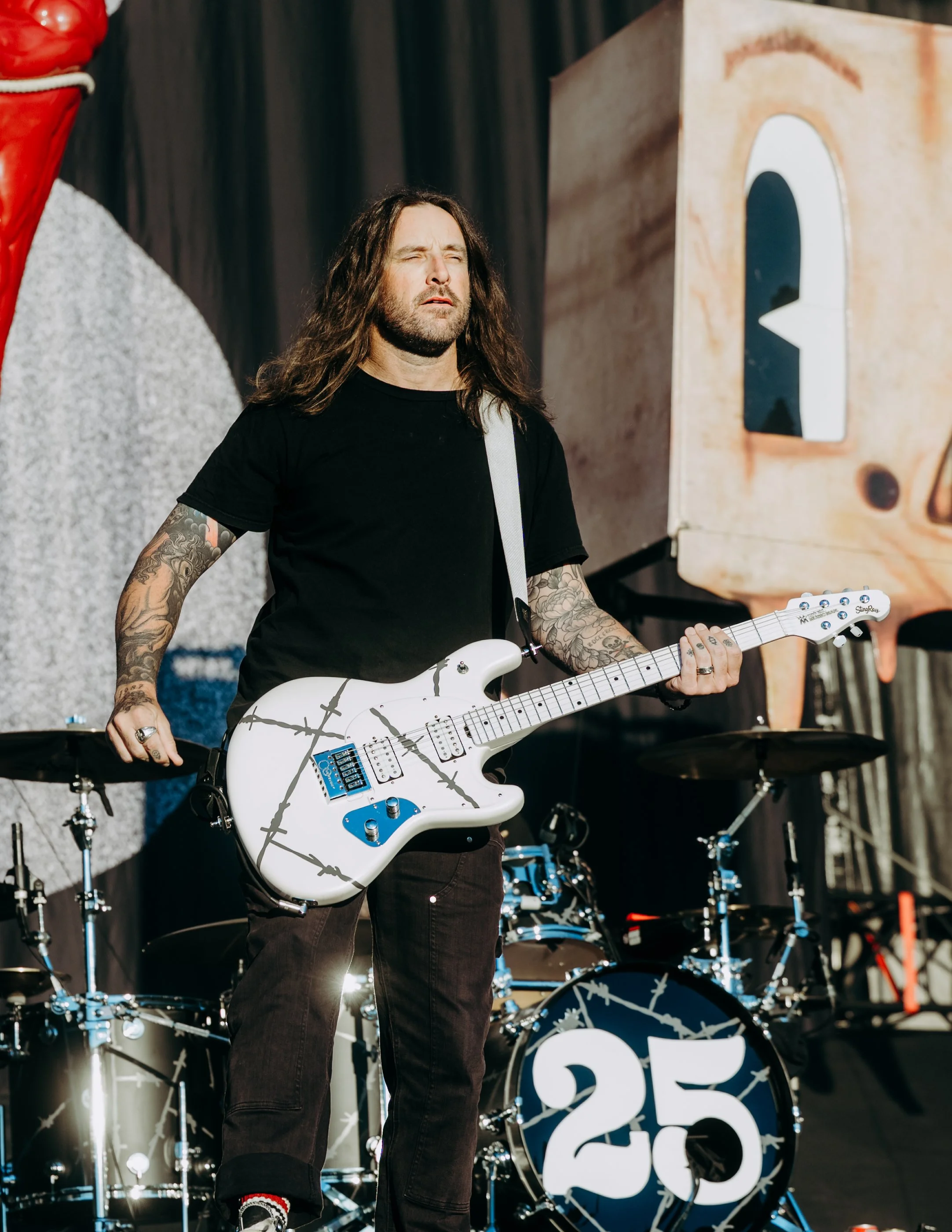










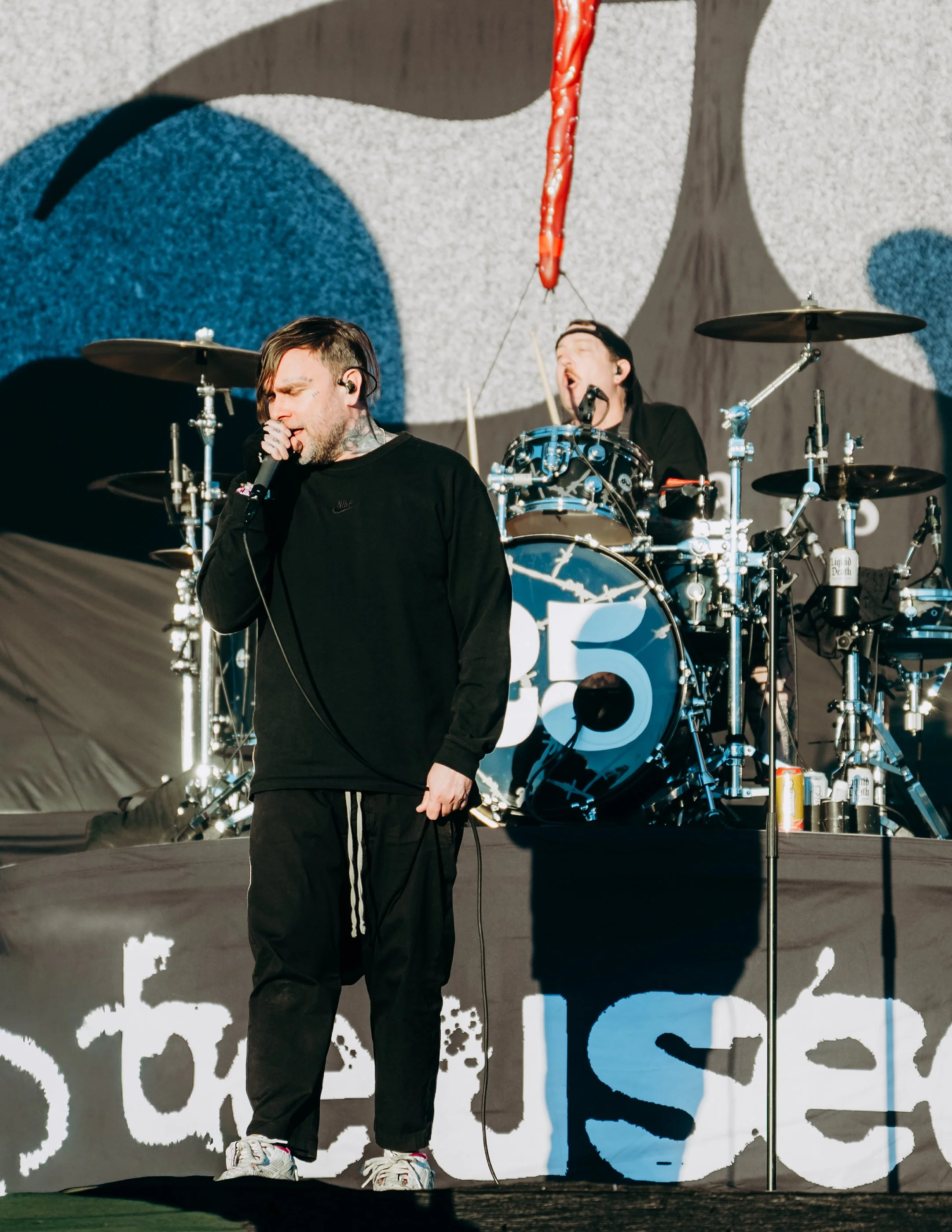



Knocked Loose
Knocked Loose stands in stark contrast to polished pop-punk nostalgia, serving as raw and undeniable proof that rock and metal are alive and urgent. Formed in 2013 in Oldham County, Kentucky, the band has evolved from underground hardcore punk into powerful metal-core titans. Their 2024 album, *You Won’t Go Before You’re Supposed To*, represents a significant leap in their career.
Their performance at the When We Were Young festival was a masterclass in controlled chaos. Frontman Bryan Garris sprinted from one end of the stage to the other, swinging his microphone like a live wire and feeding off the crowd’s relentless energy.
Their set became a defining moment of the weekend because it broke from expectations. Rather than being a nostalgia act reopening old wounds, they presented themselves as a band charging forward.































Simple Plan
Hailing from Montreal and formed in 1999, Simple Plan carved out a niche at the intersection of pop-punk and emo, pairing sing-along choruses with youthful defiance. At the festival, their performance struck the perfect balance — big on hits and even bigger on heart. From the opening notes of “I’d Do Anything” to the closing chords of “Perfect,” the set felt like a celebration of the crowd itself: loud, loyal, and unashamedly nostalgic.
Halfway through, the band launched a blizzard of white confetti that rained down around the fans pressed against the barricade, their hands raised high and voices louder than the speakers.
They embodied the mood of the weekend: fun, inclusive, and fully alive. Their performance wasn’t about reliving the past, but reconnecting with it — a reminder that pop-punk was never just a sound or a trend.

































Yellowcard
Early in the day, Yellowcard delivered one of the weekend's most uplifting performances. Frontman Ryan Key and his bandmates successfully balanced classic anthems with several newer tracks, creating a blend of emotional nostalgia and a fresh, modern edge. They celebrated the band’s first-ever No. 1 song on a Billboard chart with "Better Days," a milestone that took over two decades to achieve. This moment held special significance, showcasing that their story is still unfolding. Soon after, they played "Ocean Avenue," sending the crowd into a frenzy as thousands sang along, demonstrating just how timeless this band remains.






















The Story so Far
The Story So Far’s performance struck a balance between the past and present. They took the stage with confidence and familiarity, but without a sense of complacency. The setlist included beloved favorites that felt like old friends as well as newer material that emphasized the band’s ongoing evolution. The atmosphere was both urgent and grounded, reminding everyone that this group is not simply relying on its legacy.













While the main stages dominated the skyline, the Ghost and Allianz stages were filled with their own kind of chaotic energy—an early-morning charge that never let up. The day began with a blend of nostalgia and fresh talent: The Red Jumpsuit Apparatus set the tone with their mid-2000s emotional sound, followed by hometown favorites The Cab and newcomer Taylor Acorn. Acorn's crisp vocals and alt-pop edge added to the day's soundtrack. As the desert heat settled in, the energy only intensified.
Taking Back Sunday showcased their enduring appeal with a set that balanced raw emotion and crowd-pleasing anthems. Meanwhile, Ice Nine Kills transformed their performance into a cinematic horror show, complete with stage blood and costume changes. Beartooth, I Prevail, and Motionless in White kept the mosh pits in constant motion.
Photo Credit: Justin Agoncillo and WWWYF
Letlive. delivered one of the most unforgettable sets of the weekend. Frontman Jason Butler was a force of nature—leaping into the crowd to mosh alongside fans, scaling the stage scaffolding mid-song, and commanding every inch of space with his contagious, chaotic energy. It wasn't just a performance; it was an exorcism of sound and spirit that left both the crowd and crew stunned.
Crown the Empire gave an intense performance on the Allianz stage, setting the tone for an electrifying night. As darkness fell, Asking Alexandria wrapped up the Ghost stage with a powerful, high-volume finale. Simultaneously, Sunami energized the Allianz stage with a whirlwind of breakdowns and a surging crowd. By the time the last notes faded away, it was clear that the side stages were not just secondary attractions at the festival.
Image of Letlive by Val Avarco and WWWYF
As the lights dimmed over the Las Vegas Festival Grounds, one truth lingered in the air: punk and rock are not relics of the past — they’re alive, loud, and evolving in real time. What once felt like a nostalgic gathering has become a rallying point for a genre that refuses to fade. The veterans continue to deliver with the same grit and conviction that built the movement, while a new generation steps forward with a hunger to redefine it on their own terms.
This year’s When We Were Young proved that the torch isn’t being passed, it’s being shared. Panic! at the Disco’s triumphant return, Blink-182’s effortless command, and The Offspring’s fire-fueled performance all underscored the staying power of the scene’s architects. Avril Lavigne reminded the crowd that pop-punk’s heartbeat still belongs to the outsiders who never stopped believing in it. Meanwhile, rising acts like I Prevail, Beartooth, and Ice Nine Kills showed that the next chapter of rock is already being written — heavier, braver, and built for a generation unafraid to scream their truth.
By the weekend’s end, it was clear this wasn’t just a reunion of eras but a collision of them. The festival didn’t simply celebrate what once was; it proved how much life still exists in this culture of guitars, grit, and catharsis. And as the final echoes faded into the desert night, one thing was undeniable, the scene isn’t looking back anymore; it’s charging forward.
Make it stand out
Heather Koepp is the founder and Editor-in-Chief of Rival Magazine LA, which she launched in January 2020 — an unpredictable time to start a creative project, but one that helped shape the magazine’s fearless voice. After more than a decade behind the lens, Heather has established herself as a trusted entertainment photographer, capturing some of the biggest names and moments in live music.
Her work has been featured in Rolling Stone, Billboard Magazine, People Magazine, and more, reflecting her ability to merge storytelling with visual energy. Beyond her editorial and photography career, Heather continues to support upcoming musicians and inspire new creatives while growing her craft — and raising her son, Atticus — with an unwavering commitment to art, music, and the stories that connect them.







